Moose Jaw’s Ultimate



























2023
The most complete guide of products, services and activities for mature adults
Retired and feeling overwhelmed?
See what Aspira West Park Crossing can do for you. Choose from a range of accommodation options and a variety of personalized retirement services. Stay active, inspired and comfortable on your terms in the warmth of a vibrant community. Savour a meal with loved ones or stimulate yourself with our brimming activity calendar, it’s up to you. If you’re tired of chores ruling your retirement and you’d like to spend more time on the things and people you love, then it’s time for Aspira.

For more information call 1-866-959-4848
1801 Meier Dr, Moose Jaw, SK, S6J 0C3
WWW.MOOSEJAWEXPRESS.COM 2 Tour our suites. Stay for lunch.
aspiralife.ca
For many people getting older isn’t funny, but keeping your sense of humor as we age has proven to help us cope with the changes, challenges and unexpected obstacles of aging. A dose of humor promotes good health, and has a beneficial effect on some of the most common health challenges of aging. These benefits fall in four important areas, including:
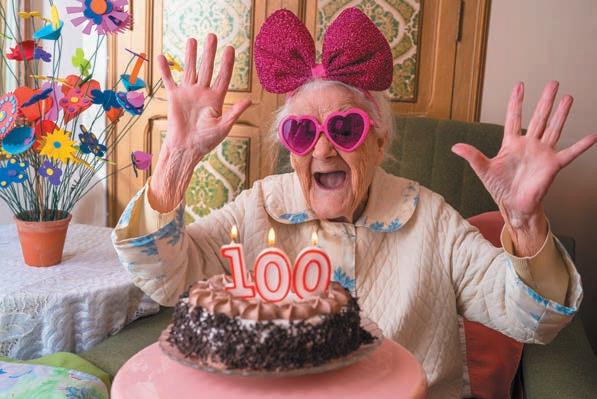
Humor reduces stress: It is believed that laughter works by relieving stress, which is implicated in so many negative impacts on our health. Laughing can help relax muscles, lowers blood pressure and increase the oxygen level in your blood. When you laugh, you are stimulating the immune system, counteracting the negative effects of stress.
Humor makes you feel good: Having a sense of humor can have a positive impact
immune system, and has proven to benefit heart health. Laughter helps keep our blood vessels healthy, reduces the serum cortisol levels in the blood, increases the T-lymphocytes (T-cells) in the body, and improves cholesterol levels.
Humor has clinical benefits: Studies over the last five years have produced findings that suggest humor can have clinical ben-
tions. Older adults may have age-associated memory deficiencies, that when humor is applied to various therapies, the results have shown improved learning ability, short-term memory, and delayed recall which in turn has improved their quality of life.
Humor is good for the brain: Humor is a great way to give our brains a good workout. A good laugh can be a highly developed mental exercise that trains us to approach aging and the ideas of aging in different, inventive ways. Researchers say that even the lowly pun requires the brain to shift perspective.
https://www.firstlighthomecare.com/
*Discounts apply to our regular prices on all almost all merchandise purchased by seniors and their accompanying family members with a valid PC Optimum points card after redemption and discounts. Discount excludes purchase of tobacco, lottery tickets, alcohol, gift cards, all prepaid card, transit/event tickets, post office transactions, prestige cosmetics, prestige fragrances, passport photos, cash back, delivery charges, all purchases made through non-participating 3rd party operations and any other products that may not legally be offered in connection with the Program, are provincially regulated (including pharmacy-related transactions) or as we determine from time to time. Offer applies to photofinishing services that are picked up and paid for on the day of the offer only. Discounts may not exceed $50.


WWW.MOOSEJAWEXPRESS.COM 3
Humour
428 Lillooet St W (306) 691-4870 710 Main St
The Benefits of
as we Age
N unit F (306) 693-5184
Save with a PC Optimum card on almost
regular priced
20%
Seniors’ Day
all
merchandise.*
Canada ranks high in quality of life for seniors
Canada is one of the best countries to grow old in, a recent HelpAge International study shows. The study included 790 million people – 91 per cent of them over the age of 60 – from 96 countries, whose responses ranked Canada as the fourth best place for quality of life for seniors. This is great news for seniors considering assisted living or retirement residence living in our country, and may prompt us as Canadians to determine how to climb even higher on that list. Factors that contribute to a high quality of life
There were several factors that helped Canada rank high on the scale for seniors’ quality of life. We came in seventh for income security, fourth for health status, eighth for employment and educational
capabilities, and ninth for an enabling environment. In general, each of these factors can help people lead happier, more productive lives. For starters, when people feel financially secure, their stress levels reduce significantly. According to Sun Life Financial, personal or household finances are a major source of anxiety for older adults. Having financial issues makes it difficult to even fulfill one’s most basic needs; happily, Canada ranks high on the list of people with stable income. Being healthy is also crucial to having a high quality of life. Those in good health are more able to maintain active social lives and be productive, which in turn makes them happier. Similarly, when there’s a variety of career and educa-
tional opportunities, people typically feel more fulfilled by their contributions to society, thus strengthening their quality of life. The same positive effects are experienced when the environment encourages a healthy lifestyle, which those Canadians polled say is the case for our country. How we can continue to keep seniors happy and healthy HelpAge Canada Chairperson
Jack Panozzo feels optimistic about the results of the survey, but advises that there’s still room for improvement.
“While it is very positive that Canada ranks fourth on seniors’ well-being, we still cannot afford to be complacent,”

Panozzo said. “Our aging population is fast becoming a pressing issue that challenges us all – as individuals, busi-
nesses, organizations and as governments.”
As an earlier report from the Canadian Medical Association shows, Canada’s aging population needs to take special care when planning for retirement to keep quality of life high. The study shows that over 60 per cent of caregivers are currently providing care for older loved ones, causing them to feel a greater sense of stress; therefore, it may be beneficial for both seniors and their caregivers to factor independent living into their plans for retirement.
https://chartwell.com/en/ blog/2014/10/canada-rankshigh-in-quality-of-life-forseniors



WWW.MOOSEJAWEXPRESS.COM 4
Contact the Transit office for more information: Phone: (306) 694-4488 Email: transit@moosejaw.ca Website: MooseJaw.ca/Transit Mobility issues don’t have to stop you from experiencing Canada’s Most Notorious City. Moose Jaw Transit offers Paratransit Service, an accessible door-to-door shared-ride public transit option available to residents and visitors of Moose Jaw who cannot use regular transit due to special needs. PARATRANSIT SERVICE Transit passes and tickets are available for purchase at City Hall and the Kinsmen Sportsplex during regular business hours. NEW: Download the HotSpot app to purchase your digital bus pass or ticket. Scan the QR code for more information! MEMORIALS LTD EMCO Visit Cheryl at our Moose Jaw Showroom 721 Caribou St. W or contact 306-692-4666 c.richardson@remco-memorials.ca www.remco-memorials.ca Making Memories Timeless
Healthy Habits for Older Adults Who Want to Ease the Effects of Aging
with exercising and performing everyday tasks, and the amount of assistance they require can vary, from occasional to around the clock.
Simplifying Things
Incorporating More Technology Into Life
Seniors are never too old to change up a few things in life. In fact, doing something different can dramatically slow down the process of aging. These lifestyle habits are known to reduce the impact of aging on the mind and body. Try slowly adding them to your senior loved one’s routine, and watch as his or her energy and outlook on life get a lift.
Trying Something New On A Regular Basis
Seniors who view life as an ever-changing journey tend to retain that youthful spark for much longer than those who get stuck in ruts. Doing some thing new could be as simple as rearranging the living room furniture or visiting a new res taurant in town. Your loved one can also take it further by traveling to a distant location. Either way, your parent can keep his or her mind sharp and feel like the world is filled with infinite possibilities.
Being Social
Older adults often stop social izing. It does become more difficult to make friends with age, but the effort seniors put into relationships is worth it. Encourage your loved one to make a commitment to talk to at least one other person a day if he or she lives alone.

Whether your loved one chats with the grocery store clerk or enjoys a lively virtual visit with a grandchild, he or she will feel better emotionally. Seniors can get a wide variety of benefits when they enjoy the companionship of compassionate professional caregivers. Organizations for the elderly can be a great boon to
People often think they have to add things to their routines to slow down the aging process, but one of the best ways for seniors to boost longevity is to knock a few things off their todo lists. Trying to do too much is stressful, and all that stress takes a toll on the immune system. If your loved one feels anxious driving, arrange for transportation services. If cleaning the bathroom makes your loved one worry about falling, schedule a housecleaning service to help out. Letting go of stressors leaves more room for brain-boosting
Sitting in front of a screen isn’t going to help your parent build heart health, but he or she can watch and move along with exercise videos on a computer or the television. Technology can also slow down aging by protecting your loved one from harm. Explore smartphone options that can help your loved one see who’s at the door before opening it or set an alarm to remind him or her to take medication. Your loved one will feel more lighthearted without so many worries on his or her mind.
BY ZAREENA KHAN
https://www.homecareassistanceedmonton.ca/practicesthat-can-lessen-the-impacts-



306.693.0606 270 Caribou St. W. www.culligan.com High Quality water delivered to your home, water softener sales, rentals, maintenance. Better Water Solution for your entire home.
Why Is It Essential for Older Adults to Preserve Their Dignity?
According to the Canadian Association of Retired Persons, nearly 10 million Canadians provide some type of care for family members or friends. If you’re one of them and the individual you’re helping is older, it’s likely that your main focus is on assisting with daily needs and other essential aspects of care. However, it’s just as important to help your senior loved one maintain a sense of dignity. Here’s why.

How would you feel if someone suddenly hovered over you while you use the bathroom or started making assumptions about your daily preferences about everything from the TV shows you watch to the foods you eat? If you’re feeling a bit uncomfortable imagining these scenarios, this is exactly the same reaction your loved one would have if you treated him or her the same way. This type of behavior could also contribute to depression and other changes in mood. Instead, maintain your loved one’s dignity as much as possible by involving him or her in daily decision-making and finding ways to respect his or her privacy while helping with toileting and bathing tasks.
It Helps Them Maintain Their Independence
receiving help with tasks that have become more challenging over time. Even when families have the best intentions, they may not have the time to provide the care their elderly loved ones need and deserve. If your loved one needs help for a few hours a day or a few days a week, reach out to a trusted provider that seniors can depend on.
It Encourages Productive Communication
It Makes Them Feel Respected
When you’re caring for an aging parent, it’s easy to get into the habit of reversing roles and treating him or her like a child. This is more likely to happen if your loved one has physical or cognitive limitations. However, treating seniors like adults when care is provided is important because it shows them you respect them. You can accomplish this goal by:
• Providing appropriate choices
• Asking your loved one’s opinion about things you know he or she can offer input on
• Getting permission first before you touch your loved one when helping with grooming, bathing, and other daily routines involving physical contact
A professional caregiver can offer support while treating your parent with the dignity he or she deserves. Families should make sure their senior loved ones have the resources they need to maintain their independence and remain healthy. Trusted inhome care professionals can assist seniors with daily tasks like cooking, bathing, and exercise, and they can also encourage them to focus on healthier lifestyle habits.
It
Helps Them Emotionally
Maintaining your loved one’s dignity makes him or her feel relevant and acknowledged, which can lead to a greater sense of independence. When seniors feel they still have a say in how they live their lives, they may be more willing to take the initiative to do things that are beneficial for their overall wellbeing, including:


• Being more socially involved with family members, friends, and other seniors
• Getting regular exercise in a way that’s comfortable for them
• Enjoying healthy meals if they know they’ll be able to choose the foods and help with preparation
Do you consistently have one-sided conversations with your loved one without really listening? Do you talk with other family members when your loved one is in the same room but act as if he or she isn’t there? If so, your loved one may stop making an effort to communicate with you. Maintaining dignity when it comes to communication means involving your loved one in conversations and making an effort to figure out what he or she is trying to convey.
You’ll ultimately be rewarded with a better relationship and more effective communication that’s mutually beneficial. Even if your loved one has difficulty verbalizing, you may be able to promote a sense of dignity by:
• Paying attention to his or her facial expressions
• Taking cues from his or her body language
• Being patient if his or her speaking pattern is slower than normal and avoiding the temptation to complete his or her sentences
Living independently is important for seniors who want to maintain a high quality of life. For some, this simply means
WWW.MOOSEJAWEXPRESS.COM 6
https://www.homecareassistanceedmonton.ca/importance-of-dignity-for-aging-adults/
Embracing aging in the community



as laziness or as loss of energy or as an error, and then you’re not really hearing the whole issue of what is unique about this stage of life.

and you don’t want to be entrapped by it. These are the two extremes of every system, including aging. It’s one of the many systems you are a part of.

When you look at your community, which includes the churches, the bureaucracy, the social groups you are a part of, you’re standing back to look at the part you’re playing in all those situations and standing back again to fit that that into the context of, “Where am I in this stage of life?” Because different stages of life require a different way of playing in all of the systems. If you’re arriving at the stage of life where you’re beginning to feel the desire to spend a little more quiet time reflecting and you’re still holding onto the model that, “I’m supposed to serve and do and do and do,” you push away the other thing
I think it is very naïve to think that people as they age suddenly are going to say, “Well, I’ve finished my work in the world, goodbye world!” Because your ego is part of the system of the world, and you’ll do violence to it if you walk away that way. And not only that, but society needs the kind of stuff you have to offer at this point, you’ve just got to figure out how to offer it. Offering into society the wisdom of your experience. Offering your time to other people.
As you look at the [circle of life], or the drama or story, there will be different systems of which you are a part. Your game is to have a reflective moment where you take that system and look at it and see where you are in it. How you are playing in it, how conscious you are about it. Are you honoring it in a way that isn’t entrapping you? You don’t want to deny it
When you see the kinds of rips and tears in the social fabric that comes with so many unpredictable forces happening in terms of technology and changes in different aspects of society, you watch the breakdowns of family, the violence and greed. You see that the fabric of the society gets very frayed and then you recognize that age gives you a perspective to see that, to not be part of the fraying process. And this awareness allows you to play a part in the reweaving. Not going backwards, but hearing how to weave a new pattern out of all this. And that’s part of what being an elder in a society is all about.
https://www.ramdass.org/embracing-aging-in-the-community/?gclid=EAIaIQobChMI2K-vwc2u_AIVxx-tBh2v-AKeEAMYAiAAEgLOX_D_ BwE#more-15543
WWW.MOOSEJAWEXPRESS.COM 7
38 High St. West Moose Jaw | 306-692-7888 | Hours: Monday - Saturday 9am - 5:30pm We have a wide range of furniture and appliances to meet your needs and budget.



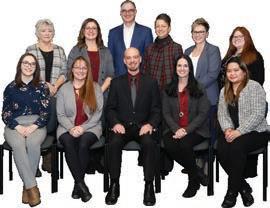
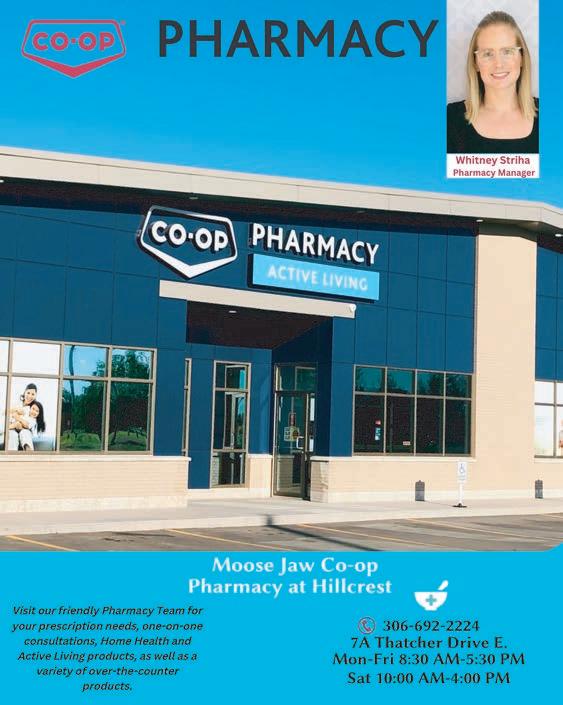







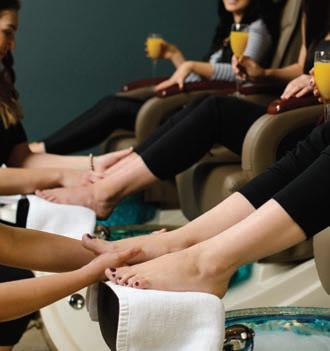



WWW.MOOSEJAWEXPRESS.COM 9 339 Main St. N. Moose Jaw www.taxteam.ca 306.694.4829 WE PREPARE ESTATE TAX RETURNS 5 Feb 6th-May 1st O ce Hours May-Jan Call for hours MENTION THIS AD AND SAVE 15% Let’s face it: If anyone deserves a break, it’s you. You’ve earned it. So let us handle your taxes this year. You’ll receive professional tax preparation services at rates we’ve reserved just for our age 60+ clients. Have a lot of T5 investment slips? Not a problem...we don’t charge extra for every slip. And we’ll tell you exactly what your fee will be before we start...even over the phone. Superior Service. Seniors’ Prices. LOCATED IN THE HISTORIC CNR STATION LUXURIOUS ATMOSPHERE FIVE-STAR EDUCATED PROFESSIONALS ADVANCED FOOT CARE: TOE NAIL CLIPPING, INGROWN TOE NAILS, TREATING NAIL CONDITIONS, ETC. MANICURES PEDICURES FACIALS MASSAGE BODY WRAPS DERMAPLANING WAXING HENNA BROW LASH LIFT & TINT SPA BAR MENU SENIOR SPECIAL! Enjoy $20 OFF a regular priced pedicure! * Excludes Saturdays. Expires December 15th, 2023. Ages 65+ TO BOOK YOUR SPA EXPERIENCE: (306) 692-1012 or online at www.saharaspa.ca 341 STADACONA ST E, MOOSE JAW, SK @saharaspa @saharaspaofficial
What 65-year-olds do for fun…
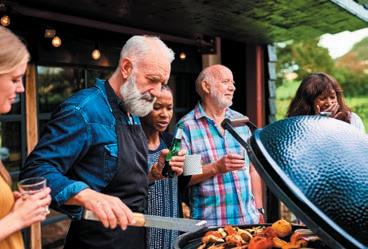
1. Gardening. Gardening is a very popular hobby amongst 60-plus-year-olds because it is a fun and relaxing way to get in touch with nature. You can see the results of all your hard work slowly growing and blooming and you can enjoy eating delicious fruits, herbs, and vegetables that you grow.And it is not only fun, but this active hobby has many health benefits that help seniors stay flexible, strong, and happy in retirement. Being outdoors while gardening gives you the necessary sunlight, natural vitamins, and regular exercise. Research shows that gardening strengthens mobility and coördination, reduces stress, and increases social interactions and problem-solving, which helps maintain the brain’s cognitive functions. Seniors who are actively gardening reported benefits like better physical and mental health.
2. Cooking. Many seniors who retire love to spend more time in the kitchen. Even just retired men love to explore new recipes and try cooking their meals, instead of their spouses. But also many 65-year-old women love to entertain and pamper their guests with delicious food. A great way to upgrade your cooking skills is to apply for a cooking class. And you can find the most fun and best cooking classes (for any skill level) on Masterclass. Over 20 world-renowned chefs share their secrets, tips, tricks, and favorite recipes. Gordon Ramsay, Thomas Keller, Aaron Franklin, Alice Waters, and many more. And the best part is… it is all online. So you or a 65-year old can learn at your own pace, time, and device. It is a great gift for anyone in retirement.
3. Host Parties. Seniors like to organize parties so another fun thing to do when you’re 65 and older is to step up your game when it comes to hosting. You can organize all sorts of gatherings for family and friends such as game nights, BBQ Pool Parties, and family dinners, or rent out extra space as an Airbnb host. And if you’re very good at organizing parties and hosting you can do it more professionally by setting up your own business as a party organizer or event manager. Why not earn some extra bucks while having fun. Did you know that staying socially active in retirement is one of the most important keys to avoiding
depression? It is one of the key factors for a happy, healthy, and fun retirement.
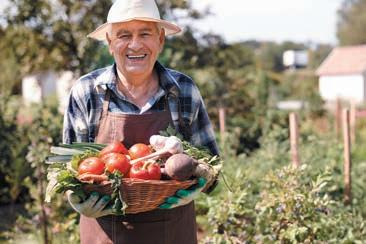
4. Follow Classes. If you always had a thought or desire to learn more about a specific subject, why not learn more about it now when you’re 65 or older? And when you think that learning at an older age is impossible think again. For example, you can follow art classes, music classes, or go back to college. Many colleges and universities give classes to seniors at reduced prices or even for free. But many retirees like to be in charge of their own schedule and that is why they like to follow online classes, where they can learn at their own pace, time, device, and from the comforts of their own home.
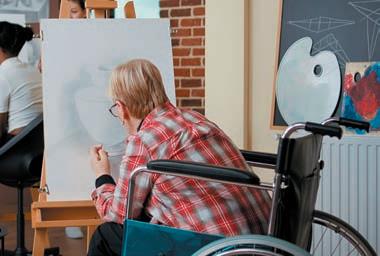
5. Hike National Parks. A best-seller book on Amazon is 100 Parks, 5,000 ideas. It is what many people receive as a retirement gift because with the endless free time they can finally enjoy traveling to the beautiful national parks. And as a lot of 60-plus-year-olds like to be physically active they love to hike through these national parks.
6. Make Roadtrips In RV. If you ask a 65-year-old what is your biggest dream? Or what is on your bucket list? Big chance you’ll get an answer such as: doing a road trip in an RV.
7. Do Volunteer Work. One of the most popular activities for 65-year-olds is doing volunteer work. It gives people a sense of purpose when they help others. It also is a great way to keep being active when you give your energy and time to local charities. Did you know that retirement success is replacing working hours with other activities that keep you mentally, physically, and socially active? It gives more meaning to your life and helping others makes you instantly happy. And it gives you a daily or weekly structure, which many retirees struggle with. It also prevents loneliness, because you interact with other people or animals constantly.
8. Write Books. Many 65-year-olds like to write books for fun. Writing a book takes time, and what do many retirees have endlessly? Yes, time. That is why many seniors like to take up writing. From writing poems, and novels to their family history book.
9. Sing. Singing is fun. It lifts up your spirit and research has shown that regular singing even increases your immune system singing is a good workout for the brain and lungs. Get yourself a shower radio, create a playlist in the car with your favorite songs, or organize a karaoke party at home and sing, just sing. And if you’re more serious, find a (senior) choir in your area to join.
WWW.MOOSEJAWEXPRESS.COM 10
10. Swim. Another activity 60-plusyear-olds love is swimming. Many pools provide special swimming hours for seniors because they know seniors love to swim. It is a great physical activity that increases flexibility. And swimming is a low-impact whole body workout with the smallest chance of injury. It is even the number one activity for injury recovery.
11. Play Games. 60-plus-year-olds love to play games; board games, online games, outdoor games, etc. Playing is a great workout for the brain because it improves cognitive function.
12. Solve Puzzles. Another fun activity 65-year-olds love is solving puzzles. For example, jigsaw puzzles, crossword puzzles, sudoku, (online) escape room, scavenger hunt, there are all sorts of fun ways to do puzzles. And doing a puzzle helps to slow down cognitive decline for older adults and prevent diseases such as Alzheimer’s and dementia. It is why many caregivers encourage people to do puzzles as they get older.
13. Listen To Podcasts. Listening to podcasts has become extremely popular over the last 5 years. And that is not only because young people like to listen to podcasts. Even my 94-year-old grandfather loves to listen to podcasts. You can find an interesting podcast on almost any topic and if not, you can start your own podcast. It is a great way to learn from other people and get new insights, which will give you new material to discuss for the next social gathering.
14. Have A Fun Part-time Job. Being successfully retired means that you have replaced your working hours with new meaningful activities that you love and that keep you mentally, physically, and socially active. Having structure and a purpose in life is what many 65-year-olds strive for in retirement. And that is why they love to have a fun part-time job.
15. Read Books. To be able to enjoy a good book, you need time and a relaxing mind. And that is what most 60-plusyear-olds all have in common.
16. Bird Watching. Many 65-year-.olds, love to watch birds in their gardens. To invite them into the garden, create a lot of birdhouses and fill them with seeds and peanut butter.
17. Restore A Classic Car. The ultimate retirement dream for many retirees is to restore a classic car.
18. Dance. Dancing is a fun activity that also helps as a mood booster and has many health benefits. According to a recent study, it even can reverse the signs of aging in the
brain! It is a fun therapy for body, mind and soul. If you’re interested in taking up dancing you can consider following a dance class, or a zumba class. To remind you that dancing is ageless, look at this older couple who never stopped jiving.

19. Do Arts & Crafts. 65-plus-year-olds love to get creative. It is not surprising that anyone including seniors (especially women) love to have a creative hobby and explore hobby ideas such as knitting and crochet.
20. Genealogy. Besides gardening, and doing volunteer work many older people like spending time on their family history, which is also called genealogy. You can even do a DNA kit to find out more information about your ancestors and explore databases to find faraway family members.
21. Go To The Gym. Staying physically fit is an important goal for many 65-year-olds. You haven’t worked that hard to not be able to enjoy retirement as long and as healthy as possible. That is why a lot of retirees go to the gym a couple of days a week. A good activity to stay strong, in good health, and socialize.
22. Photography. Photography is a fun hobby but it also has a therapeutic effect. Immersing in a creative activity such as photography lowers the stress hormone level. And it improves cognitive function and creativity. Photography is also a very cheap activity and easy to get started because you don’t have to buy or have an expensive DSRL camera to create beautiful pictures. Get your phone out and go outside and just start shooting. And share with the world if you like.
23. Learn A New Language. You’ll find learning a new language on many seniors’ bucket lists. It is so much fun to be able to communicate in another language (while traveling), even if it is just a couple of words.
24. Play A Musical Instrument. Next to learning a new language, many older adults have the desire to learn to play a (new) musical instrument. While it can be fun to play an instrument and learn more than just ‘Happy Birthday’ it also improves moods, brings back older and happy memories, encourages socialization, and promotes overall mental and physical health.
25. Join Community Groups. Not a lot of people know this, but many retirees miss work. Not the actual job part but the social interactions that came with the job. And so seniors seek new ways to be social and that is why many 65-yearolds join community groups. It is the best way to find like-minded people with the same interest who can possibly be a new best friend.
https://retirementtipsandtricks.com/things-65-year-olds-do-forfun/
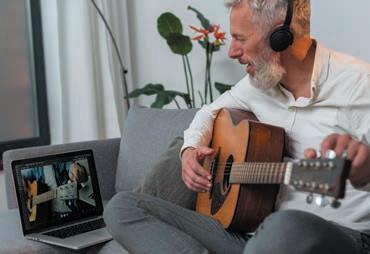

WWW.MOOSEJAWEXPRESS.COM 11
Home Supports— Real options. Better outcomes. Lower Costs.

“My world has fallen apart.”


Harold sighed.
“I am only age 83. I am healthy but I feel lost since my wife died 18 months ago. I can handle yard and repairs but I never realized how much work there is to feed myself and keep the house clean.“
Harold said he only cooked KD and scrambled eggs and toast. He discovered bugs in a cupboard and his daughter noticed dirt when she visited. “If I could get an understanding person to help with food and cleaning, it would make a big difference. But where can I find someone?”

Harold is an example of the challenges older adults face as they age. If they lose a life partner the world changes drastically. They may be living in the home of their choice but feel their independent living is being threatened. The last thing they want is to “end up in an old folks’ home.” Why should they?
What could make for healthier, happier older people and stronger, active communities in Saskatchewan?
We can learn from other places. Government investment in practical Home Supports for older adults who require mostly non-medical services provides good options for aging. There is even a new name for what is happening world-wide as the older population increases — the Silver Economy. The silver economy includes all those economic activities, products and services designed to meet the needs of older people.
Promoting health and activity in older age is the foundation for the silver economy. Making society more age-friendly and appreciating the value and needs of senior citizens is central. In all communities, there will be demand for service “businesses” to meet the needs of older people. Communities will benefit from this growth. Some services may be provided by volunteers who receive the rewards of seeing their skills being used and appreci-
ated. Communities can keep their population base and be attractive places to live. Costs to individuals could be subsidized according to income, with many paying full price for dependable services and some paying on a sliding scale. The data from other places proves that the costs of investing in Home Supports and helping seniors age in the home of their choice is about one-third the cost of paying to keep older adults in residential long term care!
Saskatchewan Seniors Mechanism (SSM) is asking you to add your name to the list of persons who see the immense benefits of providing Home Supports. More names will help our advocacy but we will not share your contact information. SSM will communicate directly with you through the HSI Newsletter, sent via email.
Visit the SSM website www.skseniorsmechanism.ca to learn more about Home Supports.

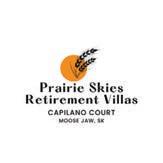

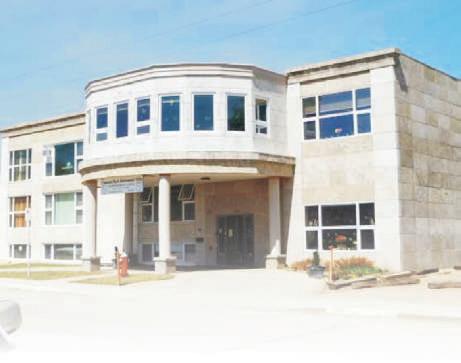
WWW.MOOSEJAWEXPRESS.COM 12 • Personal care • Nurse on duty 5 days a week 24/7 on call • 24 hour care staff • Daily medications administered • Wheelchair accessible • Personal laundry • Home cooked and nutritious menu • Respite rooms available • Palliative Care 134 Athabasca St E Moose Jaw, SK S6H 0L4
Phone Number: 306-630-3630
phone: 306-692-0601
tracy@psrvillas.com Live like you never left home! Licensed Personal Care Home Level 1-4 Live like you never left home! Licensed Personal Care Home Level 1-3 • Personal care • Nurse on duty 5 days a week 24/7 on call • 24 hour care staff • Daily medications administered • Wheelchair accessible • Personal laundry • Home cooked and nutritious menu • Respite rooms available • Palliative Care 1236 3rd Ave NW Moose Jaw, SK S6H 3V3
Phone Number: 306-630-3630
phone: 306-693-4518
tracy@psrvillas.com
Rental
House
Email
Rental
House
Email
Adjusting to Retirement: Handling the Stress and Anxiety
While retiring can be a reward for years of hard work, it can also trigger stress, anxiety, and depression. These tips can help you cope with the challenges, find new purpose, and thrive in your retire ment.
Why is retirement so stressful?

Many of us spend years picturing our ide al retirement—wheth
er it’s traveling the world, spending more time with family and friends, pursuing hobbies such as painting, gardening, cooking, playing golf, or fishing, or simply enjoying the free dom to relax and take it easy for a change. But while we tend to give lots of thought to planning for the financial aspects of retirement, we often overlook the psychological impact of retiring from work.
Initially, escaping the daily grind and a long commute, workplace politics, or a difficult boss, for example, can seem like a great relief. However, many new retirees find that after a few months the novelty of being on “permanent vacation” starts to wear off. You may miss the sense of identity, meaning, and purpose that came with your job, the structure it gave your days, or the social aspect of having co-workers.
Instead of feeling free, relaxed, and fulfilled, you feel bored, aimless, and isolated. You may grieve the loss of your old life, feel stressed about how you’re going to fill your days, or worried about the toll that being at home all day is taking on your relationship with your spouse or partner. Some new retirees even experience mental health issues such as depression and anxiety.
The truth is that no matter how much you’ve been looking forward to it, retiring from work is a major life change that can bring stress as well as benefits. In fact, some studies have linked retirement to a decline in health. One ongoing study
found that retired people, especially those in the first year of retirement, are about 40 percent more likely to experience a heart attack or stroke
your personal or family life for the sake of your job, were forced to retire before you felt ready, or have health issues that limit what you’re now able to do. Similarly, your outlook on life can also influence how well you handle the transition from work to retirement. If you positive, optimistic viewpoint, you’ll likely handle the change better than if you’re prone to worrying or struggle to cope with uncertainty in life.
Common challenges of retirement include: Struggling to “switch off” from work mode and relax, especially in the early weeks or months of retirement. anxious at having more time on your hands, but less money to spend.
working.
While some difficulties adjusting to retirement can be linked to how much you enjoyed your job (it’s less of a wrench to give up a job you hated), there are steps you can take to cope with the common challenges of retirement. Whether you’re already retired and struggling with the change, planning to make the transition soon, or facing a forced or early retirement, there are healthy ways to adjust to this new chapter in your life and ensure your retirement is both happy and rewarding.
The challenges of retirement
Whatever your circumstances, ending your working life changes things—some for the better, others in unexpected or even difficult ways. If your job was physically draining, unfulfilling, or left you feeling burned out, for example, retiring can feel like a great burden has been lifted. But if you enjoyed your work, found it gratifying, and built your social life around your career, retirement can present sterner challenges. Things can be especially tough if you made sacrifices in
• Finding it difficult to fill the extra hours you now have with meaningful activity.
• Losing your identity. If you’re no longer a doctor, teacher, designer, sales person, electrician, or driver, for example, who are you?
• Feeling isolated without the social interaction of being around your coworkers.
• Experiencing a decline in how useful, important, or self-confident you feel.
• Adjusting your routine or maintaining your independence now you’re at home with your spouse during the day.
• Some retirees even feel guilty about receiving money from a pension without directly working for it. Whatever challenges you face as you prepare for this new chapter in life, the following tips can help you ease the transition, reduce stress and anxiety, and find new meaning and purpose in life.
https://www.helpguide.org/articles/ag
WWW.MOOSEJAWEXPRESS.COM 13
ing-issues/adjusting-to-retirement.htm
Tips on how to adjust to retirement
Adjusting to retirement tip: Embrace change
Although it’s an inevitable part of life, coping with change is rarely easy. As we grow older, life can seem to change at an ever-quickening rate. Kids leave home, you lose friends and loved ones, physical and health challenges mount, and retirement looms. It’s normal to respond to these changes with an array of mixed, often conflicting emotions. Adjust your attitude. Think of retirement as a journey rather than a destination. Allow yourself time to figure everything out—you can always change direction if necessary. You can also adjust your attitude by focusing on what you’re gaining, rather than the things you’re losing.
forward in life.
Seek social support. You don’t have to face the challenges of retirement alone. Many other people are going through the same difficulties. Reaching out and sharing the burden can help ease your stress and bolster your coping skills.
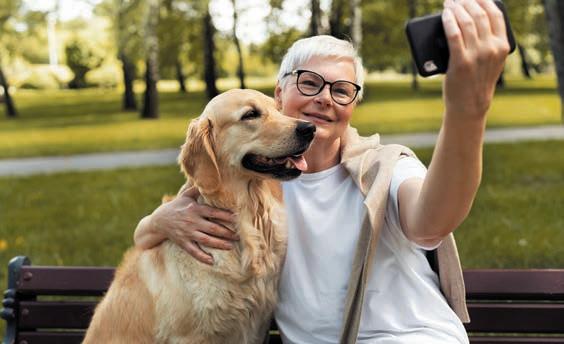

Strengthen your social network. Staying socially connected can have a huge impact on your Staying socially connected can have a huge impact on your mental health and happiness. But for many of us, our social ties are closely linked to our jobs—and they’re abruptly cut short when we retire. Make a point to stay in touch with old work colleagues after retirement and explore opportunities to broaden your social network beyond work. You’re never too old to build new, rewarding friendships.
Join a peer support group. Some senior service and other community organizations offer support groups for older adults making the transition into retirement. Talking to other people who understand what you’re going through can help reduce feelings of stress, anxiety, and isolation. Search for retirement groups in your area or on platforms such as meetup.com.
Find
new purpose and meaning
Build resilience. The more resilient you are, the better you’re able to cope with challenges like retirement. You can improve the qualities of resiliency at any age to help you keep a healthy perspective when life is at its toughest. Acknowledge your emotions. There’s no “right” or “wrong” way to respond when dealing with a major life change, so don’t try to bully yourself into feeling a certain way about retirement. Whether you feel angry, sad, anxious, grief-stricken, or a mix of emotions, by acknowledging and accepting what you’re feeling, you’ll find that even the most intense or unpleasant emotions will soon pass.
Accept the things that you can’t change. Railing against events that you have no control over can be as exhausting as it is futile. Whatever the circumstances of your retirement, by accepting them you can refocus your energy to the things that you do have control over, such as the way you choose to react to obstacles.
Redefine your identity. Many of us define ourselves by what we do for a living. After retirement, you can find new ways of defining yourself through non-work-related activities and relationships. Where you were once an accountant, for example, you’re now a mentor, volunteer, grandparent, student, memoirist, or artist.
Set new goals. You may have already achieved many of your professional goals in life, but it’s important to keep setting yourself new ones to strive towards. Having goals can energize you, provide a sense of purpose, and help to redefine your identity. Set goals that challenge and excite you and keep you moving
For many of us, working is about more than just earning money; For many of us, working added meaning and purpose to our lives. Your job can make you feel needed, productive, and useful, provide goals, or simply give you a reason to get out of the house every day. Having purpose in life also fulfills some biological needs, helping to keep your brain and immune system healthy. After retirement, it’s important to look for new sources of meaning—activities that add joy and enrich your life. In this respect, it can help if you’re not just retiring from something, but to something as well—whether that’s a fulfilling hobby, a volunteer position, or continuing education, for example.
Retirement may not have to be all-or-nothing. Many people find that it can help to gradually transition into full-time retirement rather than jump right in. If your job allows, you could take a sabbatical or extended vacation to recharge your batteries and see how you deal with the slower pace of life. You can also use the time to gauge how well you can live on the budget you’ve allocated for retirement.
Practice gratitude. It can sound simplistic when you’re in the
WWW.MOOSEJAWEXPRESS.COM 14
midst of a major life change, but noting the things you’re grateful for is a quick and easy way to improve your mood and outlook. Take a moment to appreciate the small things in life, whether it’s a phone call from a friend, a moving piece of music, or the feeling of the sun on your face, for example.
Add structure to your days. There’s comfort in routine. While you may not miss your morning commute, you may miss the daily routine of eating lunch at a certain time or chatting with colleagues during a coffee break. Even if you’re still figuring out what you want to do with your retirement, try to establish a loose daily schedule. Go to bed and get up at the same time every day, allow yourself to linger over breakfast or to read the newspaper, for example, but schedule times for exercising and socializing with friends.
Keep challenging your brain. Whether it’s finding stimulating ways to spend your days, learning a new skill, or playing new games, puzzles, or sports, it’s important to keep challenging your brain after you’ve retired. The more active you keep your brain, the better you’ll protect yourself from cognitive decline or memory problems. Try new variations of activities you enjoy or improve how well you do these activities. If you enjoy playing golf, for example, challenge yourself to lower your handicap. If you like to cook, experiment with new recipes and ingredients.

Pre-Planning...
“Can I take pressure o my family by pre-planning and paying for my funeral expenses?”

Yes, many people have done exactly this, and their families are forever grateful..

Authors: Lawrence Robinson and Melinda Smith, M.A. https://www.helpguide.org/articles/aging-issues/adjusting-to-retirement.htm


WWW.MOOSEJAWEXPRESS.COM 15
474 Hochelaga St W 306.693.4644 Our Canada Purple Shield Representative, Michael Wall is ready to put your plan on paper. Email: michaelwpurple@gmail.com Phone: 1-306-631-4667 W.J. Jones & Son Funeral Services 605A Main Street North, Moose Jaw, SK Phone: 306-694-8082 www.royallepagelandmart.com La ndm ar t INDEPENDENTLY OWNED AND OPERATED Residential, Commercial, Industrial, Farm and Ranch Looking to downsize your home but not your lifestyle? Let us help you with an easy transition. Helping you is what we do Honesty, Experience, Integrity
D. & D. Quality Care inc. a local run business since 2003
D. & D. Quality Care Inc. has been a local family run business located at 428 Main St. N. in Moose Jaw since 2003.We the staff of D. & D. thrive to provide the best medical equipment and patient recovery supplies.



Specializing in compression garments means each staff member is fully certified and trained in sizing and fitting; made to measure/ custom garments, stockings and extra or opposing accessories. We have OTC and Custom Bracing options available for upper and lower extremities. In both adult and pediatric sizing. Stimulating products and activities are also available and geared towards our Autistic, Dementia and Alzheimer’s clients as well as many other sensory products to meet other specific needs and wants for all ages.

We carry a HUGE variety of “Aids for active/ daily living” such as Lift Chairs, Power Chairs, Scooters, Walkers, Wheelchairs, Canes, Crutches, Hospital Beds, M Rails, Super Poles, Vehicle and Stair Ramps, Sheep Skins, and a large Bathroom Safety variety.
As well as casting boots, bunion aids, planter fasciitis, hammer toes, metatarsal support, orthotics, heel spur cushions and an extensive skating silicone pad protector line for lace bite and Achilles Tendon protectors.
D. & D. continues to proudly specialize in mastectomy products (prosthesis, brassieres, and accessories.) You must call to book an appointment.
Most of the products available at D. & D. Quality Care Inc. are covered by medical insurance; a doctor’s requisition (RX) is necessary and needed for all private health insurance or any other benefits you may have. We direct bill to WCB, Supplementary Health, DVA and SGI with preapproval.
Rentals are available to help you recover at a more affordable rate. Our rentals include but are not limited to wheeled/ non-wheeled walkers, Knee walkers, Crutches, Wheelchairs/ Transport chairs, Cyro cooling units.
Walker safety/ Maintenance clinics and healthy leg day clinics are offered to residential care homes and facilities. Which mainly focus’ on the safety and benefits of our products for our clients and the staff using and applying them.
We promise to always offer remarkable customer service with a smile on our face in our safe and comfortable home environment. We offer free house calls within our community for those unable to come into our store. Please call during regular business hours to book an appointment.
It is a must-see store. And we look forward to meeting you.
•
•
•
•
•
•
•
•
WWW.MOOSEJAWEXPRESS.COM 16 MONDAY TO FRIDAY 9:30AM - 4:30PM www.ddqua litycare.ca D.&D. Quality Care Inc. ALL YOUR HEALTH CARE NEEDS WCB, DVA, Supplementary Health, SGI Accredited 306-691-0300 After hour appointments available - call to book yours 428 Main St N, M oos e Jaw ddqual itycare@gma il.com CERTIFIED FITTERS MOBILITY • Scooters / Powerchairs • Walkers / Wheelchairs • Liftchairs / Tub Lifts • Beds / Ramps COMPRESSION • Stockings • Sleeves • Shorts • Gloves SPORT / SUPPORT BRACING • Foot / Ankle • Knee / Back • Wrist / Elbow • Shoulder / Neck RENTALS • Cooling Units • Knee Walkers • Walkers • Crutches STIMULATING ACTIVITIES & SENSORY PRODUCTS MASTECTOMY
Prosthesis
Brassieres
Wraps
Accessiories
LIVING
DAILY
/
Benches
Bath
Shower
Grab Bars / Safety Rails
Raised
/ Commodes
Seats
Registered Foot Care Nurse Call To Book An Appointment
Canes / Sheepskins



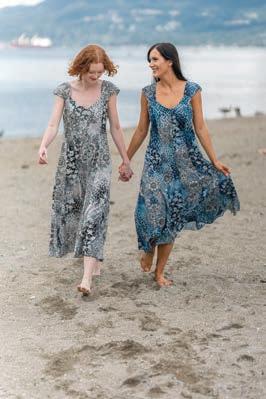



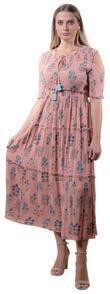













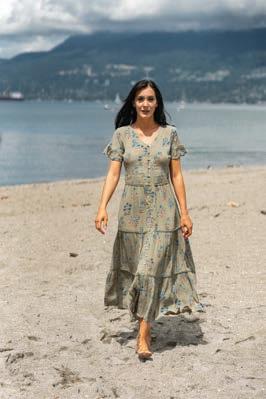
WWW.MOOSEJAWEXPRESS.COM 17 1235 main st N TOWN N COUNTRY MALL 306-681-3561 for this Spring & forSummer! this Spring & Summer! New Arrivals New Arrivals
Moose Jaw Health Services for Seniors
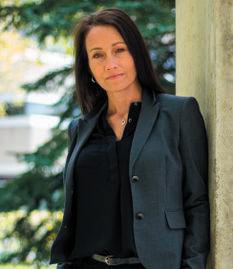



LABORATORY SERVICES
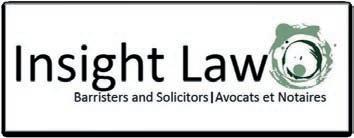

Moose Jaw has three community-based laboratory sites along with services at the Dr. F.H. Wigmore Regional Hospital. Please consider which site will work best for you. If you need other hospital-based services such as x-ray, ECG, etc., please use the hospital for your blood work. For laboratory inquiries, please call 306-694-0391. Phone to book appointments, open 7:30am to 5:00pm, Monday to Friday.
Crescent View Clinic

131 1st Avenue NE
Monday to Friday
Garbage

WWW.MOOSEJAWEXPRESS.COM 18
Fully licensed and insured. All applicable certification. (weed/tree spraying, fall protection, ground disturbance) Guaranteed best rates in town by a yard! Call us today! Let us turn your yard into your own personal paradise!
and Fall Clean-up
Spring
removal
needles)
Power vacuum (pine
Pest Control Fertilizing
maintenance
trimming
cleanout
removal
landscaping Rock work including patios, retaining walls, drainage & low maintenance rock features Sod
Bobcat work 306-690-5263 Commercial and Residential Services Let us tailor a monthly/yearly program for you!
Aerating Rototilling Weed and
Lawn
Hedge
Eavestrough
Snow
General
Grading
7:30 a.m.
7:30 a.m.
p.m.
to 3:30 p.m. Saturday
to 3:00
a.m. to 12:00 p.m. Professional Medical Closed until further notice Dr. F.H. Wigmore Regional Hospital 55 Diefenbaker Drive Monday to Friday 7:30 a.m. to 5:00 p.m. We deliver traditional legal services in a way that fits your needs and your life, with improved accessibility, responsible billing practices, and bilingual service. We are located at 35A Ominica Street West in Moose JawS6H 1W8 Give us a call at 306-691-2002 or send us an email at reception@insightlawsk.ca Hours of Operation: Monday –Friday: 8:30 a.m to 12:00 p.m & 1:00 p.m. to 5:00 p.m. Extended hours available by appointment. Suzanne G Young, J.D. ICD.D. Kyla K. Dilling, B.A., B.S.W. J.D. Connor M. Ferguson B.A., J.D.
Alliance Medical 890A Lillooet Street W Mon, Wed, Thurs, Fri 8:00
FIVE HILLS ACCESS CENTRE
Five Hills Access Centre is a single point of entry for all Continuing Care Services including Home Care, Long Term Care, Palliative, Respite and Transition Care.

131 1st Avenue NE
Monday to Friday, 8:00 a.m. – 4:00 p.m. 306-691-2090 or Toll Free: 1-866-211-5696


MENTAL HEALTH AND ADDICTIONS SERVICES

Entry to all outpatient programs and services at Mental Health & Addictions (MHAS) is through Centralized Intake. Centralized Intake responds to all initial requests for mental health and addictions information or services from individuals, family physicians, family members, or community agency members. Program staff will briefly discuss concerns with the referring person and determine the appropriate response to the service request.
Referrals may be assigned to a program area at MHAS or to one offered by another community agency. Central Intake can be reached at 306-691-6464.
HOME CARE
Access to Home Care services is through the Five Hills Access Centre (FHAC). FHAC provides a single point for accessing Home Care, Respite Care, Palliative Care, Convalescent Care and Long Term Care.
Please call FHAC at 306-691-2090
Monday to Friday between 8:00 a.m. and 4:30 p.m.
VOLUNTEER SERVICES


Are you interested in helping others?
Benefits of Volunteering:
• Enhance our services
• Share your life experiences
• Explore medical careers
• Feel good about yourself & gain confidence
• Improve the health journey for neighbors/friends
Contact Volunteer Services at 306-691-6508.
Making a difference in the community? Sharing your skills and talents? Meeting new people? Why not volunteer! Volunteer Services in Moose Jaw supports the communities and surrounding areas of Assiniboia, Central Butte, Craik, Gravelbourg, Lafleche, Moose Jaw and Rockglen. Volunteers supplement and extend the services provided by employees. These programs enhance the wellbeing of our clients and patients through the provision of services.
WWW.MOOSEJAWEXPRESS.COM 19
Capone’s Handi Cab 306-972-5050 1105 Athabasca St. E . Can be pre-booked for appointments Clean, Spacious Vehicles Friendly Professional Service Local or Long Distance Trips Great for Group Outings Seating for 8 plus Wheelchairs FIVE HILLS ACCESS CENTRE Central Intake: 306-691-2090 or toll free 1-866-211-5696 The Five Hills Access Centre provides intake, assessment and care management services to help people access home care, long term Services include: • Home Care • Respite Care • Convalescent Care • Personal Care Homes •
Home Care provides health and personal support services that will assist the client to stay at home. Nursing services are provided per physician referral. All other services are based on the assessed needs and a goal for service. For an assessment of your needs, please call the Five Hills Access Centre (FHAC) at 306-691-2090.
Home Care services available are:

• Nursing
• IV Therapy
• Continuing Care Aide Services

• Respite
• Meals on Wheels
• Physiotherapy, Occupational Therapy
• Palliative Care
• Wellness Clinics
HOME NURSING CARE
• Nursing staff provide a variety of services in the home or in the Treatment Centre under the direction of your doctor.
• Nursing visits are scheduled by priority of need.
• There are no fees for nursing services.
CONTINUING CARE AIDE (CCA) SERVICES
• CCAs provide a wide range of services based on the assessment.































• Schedule of services may vary occasionally due to unforeseen events.
• The client must be at home when the service is provided.
• The client is responsible to provide necessary personal care supplies for CCA.



















































































































• There is a cost for CCA services. Ask the Continuing Care Coordinator (CCC) for this amount.












































WWW.MOOSEJAWEXPRESS.COM 20
Call Joe today 306.681.7982 HELPING SENIORS STAY IN THEIR OWN HOMES EXCELLENT SERVICE AT A GREAT PRICE! WE OFFER YARD CARE, YARD CLEAN UP, JUNK REMOVAL , EAVES CLEANING, SNOW REMOVAL, AND MUCH MORE! WE ALWAYS GO THE EXTRA MILE!! two bit yard care 3 0 6 681-7982 You can contact your local Moose Jaw 306-692-5453
Home Care
RESPITE IN HOME
• Respite services are available to families who cannot leave an individual unattended. Continuing Care Aides provide “relief” for caregivers for short periods of time. It can be regularly scheduled or as needed.


• Prior notice and approval is required to set-up service.


• Not to be used to allow caregiver to go to work.
MEALS ON WHEELS
• Hot, nutritionally balanced meals are available, based on the assessed need.
• Meals are prepared by a health facility or private provider.
• Meals are delivered by volunteers, Monday through Saturday, including statutory holidays. (Some variations in rural areas).
• The client must be home to receive the meal.
PALLIATIVE CARE
• Referrals to the Palliative Care Program can be made by anyone calling the Five Hills Access Centre and will be reviewed by the Palliative Care Coordinator.

• Service availability may vary slightly throughout the health region.
• Palliative Care is the physical, emotional, social and spiritual care given to a dying individual and his or her loved ones where active treatment is no longer the goal. Such care
may occur in a hospital ward or a long-term care institution, but is usually a service provided in the home.

• Palliative Care Services can help if it is your wish to die in the comfort and privacy of your own home with the support of your family. Physicians, nurses, continuing care aides, social workers and other healthcare professionals work together with you and your loved ones to make the last stages of life as meaningful as possible. We tailor help to your individual needs and offer on-going support throughout your terminal illness.
• Our goal is to relieve suffering and offer quality of life and personal dignity until death. If the time should come where transfer to a care facility is needed, your Palliative Case Manager will assist you to make as smooth a transition as possible.

For more information, please contact the Five Hills Access Centre by calling 306-691-2090.
Three
night the 76-yearold draws a bath. She puts her foot in and pauses. She yells down the stairs “was I getting in or out of the bath?”.
The 74-year-old yells back “I don’t know. I’ll come up and see.”
She starts up the stairs and pauses. Then she yells “was I going up the stairs or down?”
The 72-year-old is sitting at the kitchen table having tea listening to her sisters. She shakes her head and says “I sure hope I never get that forgetful.”
She knocks on wood for good measure and then yells “I’ll come up and help both of you as soon as I see who’s at the door”.
WWW.MOOSEJAWEXPRESS.COM 21 LaurieLunde 306.684.2704 Serving Moose Jaw, Regina & Area Bringing an experienced perspective to all your real estate needs. Also providing 3D walkthroughs of all our listings to make home shopping safer! Call For A Home Value Analysis www.LaurieLunde.com Seniors Real Estate Specialist Call My Personal Number Direct! Each o ce is independently owned and operated. ®/™ trademarks owned by Century 21 Real Estate LLC, used under license or authorized sub-license. © 2019 Century 21 Canada Limited Partnership, CENTURY 21 Dome Realty Inc. REALTOR® NEW MEANING OF RETIREMENT Book your private tour today 306-693-3777 It’s a great place to call home! In Suite Laundry Full Kitchen Balconies Separate Temperature Control in each Suite 24 Hour Bistro Entertainment Up to 2 bedroom, 2 bathroom suites available. Independent Living 917 Bradley St Moose Jaw, SK
ON WOOD
KNOCK
in a
sisters ages 72, 74, and 76 live
house together. One
Senior Lifestyle in 2023
What does it mean to have a Senior Lifestyle? My grandparents just retired and then started puttering in their yard every day. Today’s senior is more involved, outgoing, and still entertaining in their home and yard. The work did not get any easier to do and the expectations got higher! The freedom to have a beautifully landscaped outdoor space that one can sit back and enjoy can be laborious work. The physical nature of landscape maintenance has often caused many seniors to “let their yard go”. Now imagine if you could get affordable help from Trained Landscape Professionals to keep your yard looking beautiful and healthy. Mowing seems like an easy job but if the lawn still doesn’t look great after you finish mowing, what could be the problem? When you have Trained Landscape Professionals on your speed dial there is always a solution.
Did you know that different lawn grass seeds will have different light and water requirements? We can over-seeded and fertilized with the correct seed and fertilizer for your circumstances you will have a lush green lawn effortlessly, that will be easy to maintain. Planting beds in your landscape may have become more work than you have time or energy to tend to. Our Trained Landscape Professionals offer services like mulching and weed barrier application to control weeds and maintain even moisture in perennial beds. These applications will save you labour and money.
Did you know that nature-based solutions in your own back yard can mitigate water runoff, plant drought and soil leaching, with
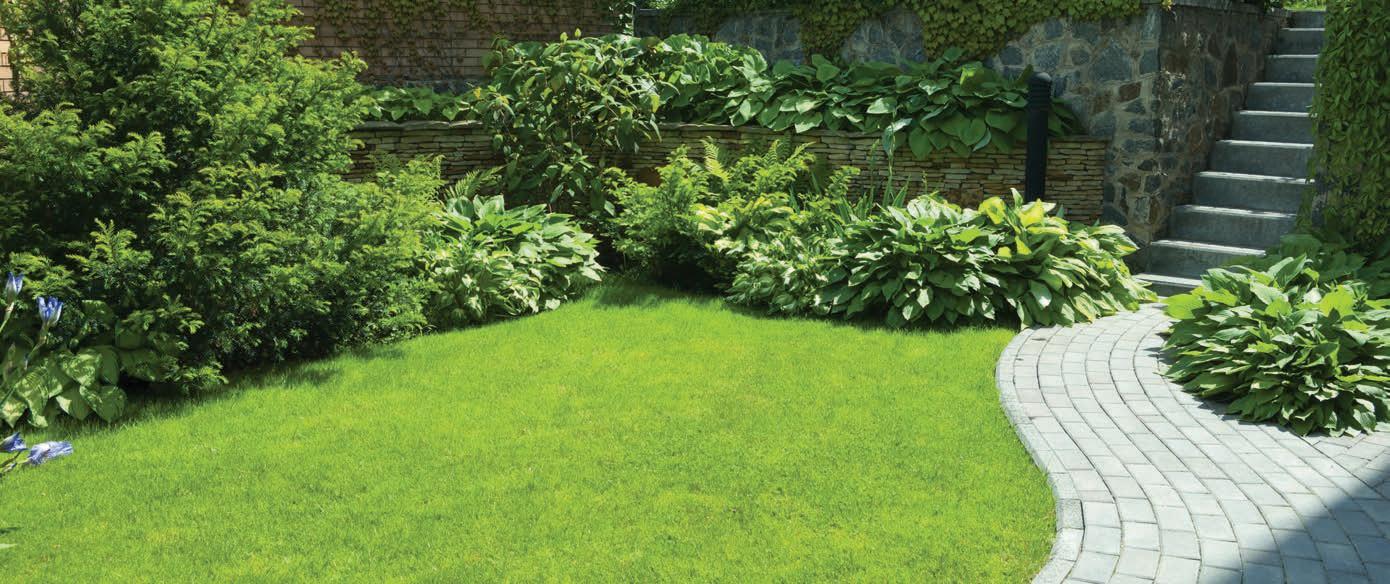
the right combination of plants and soil amendments your yard can be a thriving ecosystem that will be sustainable and healthy? Having the right plant in the right place can change the way our back yard landscapes function.
Lawn aeration can prevent water from puddling and prevent runoff from storm water, allowing the water to penetrate deeply into the soil encouraging deep lawn roots that are then drought tolerant. Once again knowledge is power and it’s important to know that if your lawn is dethatched too early, the new grass shoots can also freeze during late spring frosts.
Winter can cause many other situations in the landscape, for example icy walking surfaces, snow build up making it difficult for walkers and canes to move about safely. There is also danger of snow load on plants like cedars and shrubs that can grow bent and misshapen if the snow is not removed in a timely manner. Your beautifully landscaped outdoor space can be possible with the help of professional landscape maintenance specialists. Let us help you with the tough stuff and you focus on enjoying your retirement that you so deserve. Our advice is always free, and seniors always get a discount! We are here to help you get it right the first time so you can count on us to take care of your yard.
Leslie Cornell, PHC, RSE Cornell Design & Landscaping Ltd – President
 Prairie Landscape Horticulturist - U of S Alumni
Prairie Landscape Horticulturist - U of S Alumni
Landscape Horticulturist - Red Seal Journeyperson


WWW.MOOSEJAWEXPRESS.COM 22 Lawn Mowing, Maintenance and Aeration; Irrigation Repair and Installation; Fertilizer, Weed and Pest Control; Snow Clearing and Removal FREE NO OBLIGATION QUOTES FOR EVERYONE! Full seas no w y c acts just e time s vice available & SENIORS always get a LABOUR DISCOUNTED f Maintenance S vices No job is too big or too small we can Service them all! Give Cornell Design & Landscaping a call at 306-693-TREE (8733)
THE JOY OF SHARING


The little old couple walked slowly into McDonald’s that cold winter evening.
They looked out of place amid the young families and young couples eating there that night. Some of the customers looked admiringly at them. You could tell what the admirers were thinking. “Look, there is a couple who has been through a lot together, probably for 60 years or more!”
The little old man walked right up to the cash register, placed his order with no hesitation and then paid for their meal. The couple took a table near the back wall and started taking food off of the tray. There was one hamburger, one order of French fries and one drink.
The little old man unwrapped the plain hamburger and carefully cut it in half. He placed one half in front of his wife. Then he carefully counted out the French fries, divided them into two piles and neatly placed one pile in front of his wife. He took a sip of the drink, his wife took a sip and then set the cup down between them.
As the man began to eat his few bites of hamburger the crowd began to get restless. Again you could tell what they were thinking. “That poor old couple. All they can afford is one meal for the two of them.”
As the man began to eat his French fries one young man stood and came over to the old couple’s table. He politely offered to buy another meal for the old couple to eat. The old man replied that they were just fine. They were used to sharing everything.
Then the crowd noticed that the little old lady hadn’t eaten a bite. She just sat there watching her husband eat and occasionally taking turns sipping the drink. Again the young man came over and begged them to let him buy them something to eat. This time the lady explained that no, they were used to sharing everything.
As the little old man finished eating and was wiping his face neatly with a napkin the young man could stand it no longer. Again he came over to their table and offered to buy some food. After being politely refused again he finally asked a question of the little old lady.
“Ma’am, why aren’t you eating? You said that you share everything. What is it that you are waiting for?
She answered, “The teeth.”

WWW.MOOSEJAWEXPRESS.COM 23 #101-510 Main Street North (Timothy Eaton Gardens) 306-694-4223 MOOSE JAW & DISTRICT SENIORS ASSOCIATION INC WE ALSO OFFER HALL RENTALS AND CATERING AT COMPETITIVE PRICES COME PLAY THEN STAY FOR LUNCH AT THE TIMOTHY EATON CAFE (Open Monday to Friday 8am to 1pm) MEMBERSHIP $40/YEAR FOR ANYONE AGED 50 AND OVER ENHANCED MEMBERSHIP $60/YEAR (Includes Walking Track and Gym) HOURS OF OPERATION: MONDAY TO THURSDAY 8 TO 8 AND FRIDAY 8 TO 4
Leaving a legacy: A simple approach for older adults
• a creation, invention, or endowment that impacts the lives of others.
Your legacy is kind of like a footprint. It’s uniquely yours, created by what you do every day, and you leave it behind wherever you go.
Your legacy characterizes your life. It reflects your values, how you raise your family, and how you exist in your community.
ness crab, spot prawns, lingcod, and more.
As I write, we’re nearing the winter solstice and the end of the year.
Like many of you, I look back on the last several months and think about what I did. And what was on my to-do list but never quite got done.
For me, December is a time of reckoning. Getting my affairs in order. I’d like to have the year wrapped up so the new year can feel like a fresh start. Somehow the older I get the more important this becomes.
This year something a little different has been on my mind — my legacy. And if I even have one. And if it’s up to me to say what it is. My curiosity sparked, I’ve been searching for definitions and examples. I even looked for some how-to guidelines on creating a legacy. I thought about people I know — friends and family — along with people whose legacies are famous for their impact on humanity.
I’ve been pleasantly surprised. What I’m learning is that legacy is actually very simple. Each of us, old or young, is already creating one.
And the beauty of it is this. Your legacy is as pure and elegant as the life you’ve lived every day. It needn’t be more. You don’t have to invent a life-saving device or endow a university chair in order to leave a legacy.
What is a legacy?
It can be many things:
• a gift or inheritance;
• a tradition – even possibly that mentions the importance of family traditions for the holidays;

• a favorite pastime shared with others;
• a history, account, or family story; or
Your legacy comes from the way you think about your civic responsibility.
• A retired couple I know serves on the boards of a handful of social service agencies. Both worked in the mental health business for years and understand the importance of continuing their work by giving back.
• A book club friend is very active in Grandmother’s Against Gun Violence or some others are active in Mothers Against Drunk Driving. She’s informed, vocal, and passionate about making a difference.
Your legacy is made up of your enthusiasm for experiences you enjoy. It’s based on your interests and what you love talking about.
• My older brother has been a water skiing enthusiast all his life. At the age of 76 he still participates in masters’ competitions. He’s turned his love of the sport into helping young competitors with their technique and performance.
• My partner ’s son is drawn to all things related to fishing, especially the community aspect of it. He generously gathers friends to join him as he brings in a seasonal bounty of Dunge-
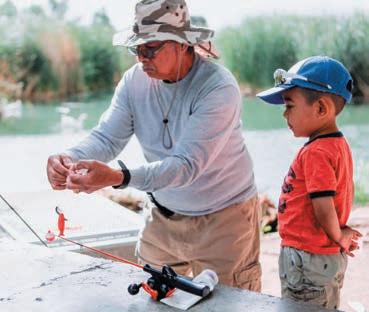
• A dear friend was born and raised in Brooklyn. She has marvelous accounts about her upbringing, the neighborhood, the influence of her Jewish community, and some of the famous people her father (who worked as a security guard) met during the course of his work. She’s a storyteller, one of the best I know. Your legacy is built on your unique brand of intelligence. You may be mathematically inclined, linguistic, musical, or have spatial, bodily-kinesthetic, or intrapersonal intelligence, for example. Your natural capabilities might inform the career you choose and your interests outside of work as well.
• My mother was a commercial artist whose aesthetic tastes influenced everything from the clothes she wore to the music she favored to the colors she chose (and frequently changed) in our house. Museums, musicals, and art festivals were her cup of tea. While none of her four children were as passionate about the arts, every one of us felt her influence in the choices we made.
• A long-time friend married an Austrian farmer whose ability to grow things and create landscapes and structures seems to spring from a naturalistic intelligence. His ability to work in stewardship with the environment by using a perma-culture technique has made him a farming authority and a beloved vendor at their outdoor market near Salzburg. Ways to leave your own legacy
As I thought about the people I know and their legacies, I came to the conclusion that most of us probably would not identify our legacy as a legacy. Most of us don’t set out to create one. Rather, we leave one behind — like that unique footprint. The average person creates a legacy over a period of many years without giving it a lot of thought.
Of course, we should all write a will to simplify things for our heirs and leave them something tangible, such as mon-
WWW.MOOSEJAWEXPRESS.COM 24
ey or personal property. But a genuine legacy can be more personal and authentic. A legacy can give you a sense of purpose as you grow older. It’s an excellent way to do good work and enhance your well-being. If you’re like me and you’re not sure what kind of legacy you’re going to leave one day, here are some things to consider.
If you want to focus your leg-
acy on your family you might:
• organize a family reunion;

• set a good example and share what you know –family recipes, a love of reading, and being a good neighbor;
• write your story or a legacy letter — or keep a journal specifically for your family, complete with photos; or
• practice living authenti-
Moose Jaw Fire Department

cally by staying true to your values.
If you have ample financial resources you might:
• contribute to a charitable organization in keeping with your values;
• fund a scholarship; or
• help to restore a historic building.
If you are moved to community activism you might:
• campaign against injustice — climate change, discrimination, or housing inequality; or
• attend local city council, county council, or school board virtual meetings. If you have training or career experience that could benefit others, you might:
• consider serving in the Peace Corp, which accepts older volunteers;
• volunteer with your local literary source - library or maybe even the annual
Fire Safety Tips for Older Adults

Knowing what to do in the event of a fire is particularly important for older adults. At age 65, people are twice as likely to be killed or injured by fires compared to the population at large. And with our numbers growing every year it's essential to take the necessary steps to stay safe.
Make sure a fire never starts by following these simple tips:
Festival of Words; or
• teach a continuing education course at a community college.
An enjoyable family activity involves starting a conversation about legacy. Anyone old enough to be in touch with their personal interests and values is old enough to have started a legacy. Share observations with others. Remember, you might be able to identify someone else’s legacy more easily than they can. Include ideas about how a personal legacy can be enhanced. Make family legacy conversations an annual tradition. The holidays are a perfect time for it.
by Katie Wright
https://www.seacarehomecare. com/resources/leaving-a-legacy-a-simple-approach-for-older-adults
Don’t reach for danger! Wear tight-fitting or rolled-up sleeves when cooking and don’t reach over a hot burner. Always stay in the kitchen when you are cooking, never leave cooking food unattended. Cooking fires are the number one cause of fire injuries among older adults. If you need to step away, you should turn off the stove.
Always blow out candles before leaving the room.
Ensure items that can burn are one metre away from space heaters.
Avoid overloading the electrical outlets. Extension cords should be used only as a temporary connection.
Avoid running cords under rugs, which can damage the cord and cause a fire.
Install a smoke alarm on every storey of your home and outside all sleeping areas. Test smoke alarms once a month and replace the battery once a year, or whenever the low-battery warning sounds. Smoke Alarms should be replaced at least every 10 years even if they are still working.
Know exactly what to do and where to go if there is a fire. Plan and practice your escape! Develop a home fire escape plan or refer to your building’s fire safety plan.
Know your local emergency number 9-1-1
If you smoke use large, deep ashtrays. If anyone in the home smokes, smoke outside. Never smoke in bed.
WWW.MOOSEJAWEXPRESS.COM 25
Government Services
Federal Services
Allowance for the Survivor This program provides a monthly non-taxable benefit to low-income widows who are not yet eligible for the Old Age Security pension.
Toll-Free: 1-800-277-9914
Canada Pension Plan (CPP) Retirement Pension The Canada Pension Plan (CPP) Retirement Pension provides a monthly taxable benefit to retired contributors.
Toll-Free: 1-800-277-9914
Guaranteed Income Supplement (GIS) This program provides a monthly non-taxable benefit to low-income Old Age Security recipients.
Toll-Free: 1-800-277-9914
Old Age Security (OAS) This pension provides a monthly taxable benefit to persons 65 years of age and over.
Toll-Free: 1-800-277-9914
Survivor’s Pension The Canada Pension (CPP) survivor’s pension is paid to the person, who at the time of death, if the legal spouse or common-law partner of the deceased contributor. If you are a separated legal spouse and the deceased had no common-law partner you may qualify for this benefit.
Toll-Free: 1-800-277-9914
Provincial Services
HealthLine HealthLine is a free, confidentional 24-hour telephone advice line staffed by client navigators, registered nurses, registered psychiatric nurses and social workers. When you call 811, a licensed health or mental health care professional will give you options and information to help you with health-related questions or concerns. Toll-Free: 811
Home Care Program Home care helps people who need acute, end-of-life, rehabilitation, maintenance, and long-term supportive care to remain independent at home.
306-691-2090
Personal Care Home Benefit (PCHB) The Personal Care Home Benefit (PCHB) provides seniors with monthly financial assistance to help them with the cost of living in a licensed personal care home.
Toll-Free: 1-855-544-7242 or 306-798-7242
Saskatchewan Housing Corp provides the coordination of optional community-based services for seniors in select social housing projects. Seniors who require a combination of shelter and support services to maintain their independence may benefit from SALS. The types of services available to seniors varay depending on the community and income.
Toll-Free: 1-306-787-4177
Saskatchewn Pension Plan (SPP) Saskatchewan Pension Plan is a voluntary, money purchase plan for people who want
an easy way to accumulate funds for retirement. The Plan is available to people between 18 and 71 years of age.
Toll-Free: 1-800-667-7153
Seniors’ Drug Plan Under the Seniors’ Drug Plan, eligible seniors 65 years and older will pay a reduced amount per prescription for drugs listed on the Saskatchewan Formulary and those approved under Exception Drug Status.
Toll-Free: 1-800-667-7581
Seniors Education Property Tax Deferral Program Seniors with household incomes under $70,000 now have the option to defer the education portion of the property taxes on their home through a repayable loan under the Seniors Education Property Tax Deferral.
306-787-4177
Seniors Income Plan (SIP) This plan supplies a monthly benefit to low-income seniors (aged 65 and over) who have little or no income other than Old Age Security (OAS) benefits and Guaranteed Income Supplement (GIS) benefits.
Toll-Free: 1-800-667-7161
LIBRARY
A library enhances the quality of life in the community and serves as an addition to and extension of other educational systems to insure opportunities for individual continuous learning.
The Public Library is a branch of the Pallier Regional Library and a resource centre for the region. The Library participates in the one province public library system and, as such, honours valid library cards from all other public libraries in the province. Library cards issued to Moose Jaw and area residents by the Public Library may be used at any other public library in the province.
HOURS:
· Monday to Thursday, 9:30 a.m. to 9:00 p.m.
· Friday & Saturday, 9:30 a.m. to 6:00 p.m.
· Sunday, 11:00 a.m. to 5:00 p.m.
The outdoor book return is open 24 hours a day, seven days a week for the return of library materials. The return is located on the Athabasca Street side of the library adjacent to the drive through and under the tall black lamp standard.
The Library hosts free adult programming throughout the year and many of these offerings will appeal to or are targeted to seniors.
The Library also offers an outreach service that includes delivery to the homes of those who are unable to visit due to illness, age, or disability. Library staff select materials based on a profile provided by the user. Deliveries are made on Wednesday and Friday afternoons.
Tech Time - technology one on one training by appointment.
For more information on the Library, its programs and services, or to arrange a visit, call 306-692-2787.
WWW.MOOSEJAWEXPRESS.COM 26
MOOSE JAW SERVICES
City of Moose Jaw
Switchboard 306-694-4400
After Normal Office Hours
306-692-2794
Emergency Services Emergency Calls
911
Fire Hall Main Office 1205 Main St. North 306-692-2792
Moose Jaw EMS
Ambulance
777 High St. West
Ambulance bookings (non-urgent transport)
306-310-5000
Office billing inquiries
306-694-2151
Ambulance fax
306-692-0236
Moose Jaw Police Service
General inquiries & complaints
306-694-7600
Crime Stoppers
1-800-222-8477
Parking ticket inquiries
306-694-7660
Criminal Investigation Division
306-694-7645
Court Services
306-694-7653
Community Programs & Safety Unit
306-694-7659
Victim Services
306-694-7621
HEALTH & WELLNESS
Alzheimer Society of Saskatchewan
301-2550 12th Ave., Regina, SK
1-877-949-4141
The Arthritis Society
1-800-321-1433
Canadian Cancer Society
1-306-790-5822
Canadian Mental Health Association
326B High St W
306-692-4240
Diabetes Canada 1-800-226-8464
Christian Counselling Centre
#4-54 Stadacona St. West 306-692-5500
Mental Health & Addictions Services
55 Diefenbaker Dr. 306-691-6464
The Ministry of Social Services Suite 90-1235 Main St. N. 306-694-3647
Moose Jaw & District Food Bank
270 Fairford St. West 306-692-2911
Moose Jaw Family Services Inc.
200 Main St. South 306-694-8133
Moose Jaw Transition House Outreach Services 306-693-6511
Wakamow Manor 200 Iroquois St. East 306-694-4030
HOUSING & CARE FACILITIES
Bentley Retirement Community 425 4th Avenue N.W. 306-692-7161
Points West Living 917 Bradley St. 306-693-3777
Capilano Court 1236 3rd Avenue N.W. 306-693-4518
Chateau St. Michael’s 525 7th Ave. S.E 306-693-2323
Chez Nous Senior Citizens Home 1101 Grafton Ave 306-693-4371
Crescent Park Retirement Villa
134 Athabasca St. East 306-692-0601
Moose Jaw Housing Authority 255 Caribou St. West 306-694-4055
Moose Jaw Special Care Home
1151 Coteau St. West 306-693-5191
Mulberry Estates 220 Mulberry Lane 306-694-5020
Pioneer Lodge (Lodge & Village) 1000 Albert St 306-693-4616
Providence Place www.provplace.ca 100 2nd Avenue N.E 306-694-8081
Edgar Hall 306-694-8870
Guardian Grove 306-694-8846
Raphael Wing 306-694-8865
St. Anthony 306-694-8867
St. Vincent 306-694-8861
Maguire Centre 306-694-8852
Aspira West Park Crossing Retirement Community 1801 Meier Dr 306-694-4744
RECREATION SERVICES
Cosmo Senior Citizen’s Centre
235 3rd Ave. N.E 306-692-6072
Moose Jaw & District Senior Citizens Association
510 Main St. North 306-694-4223
We are a Christian based assisted living community with a welcoming home town feel. We strive to keep our prices a ordable, providing home cooked meals, while maintaining the safest 24/7 care for our residents. We are located at:
1329 Herbert Ave, Herbert, Saskatchewan. CALL
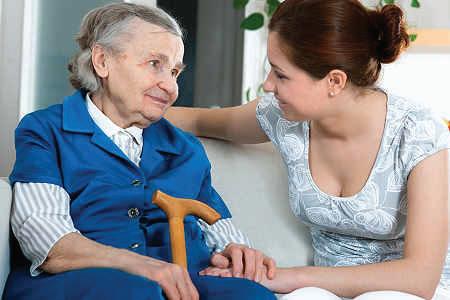
WWW.MOOSEJAWEXPRESS.COM 27
306-784-3167
Moose Jaw & District Senior Citizens Association (MJDSCA) – looking for memberships
A great facility with on-going activities, restaurant, socializing and more
Moose Jaw & District Senior Citizens Association (MJDSCA) has lots of regular activities on-the-go for seniors in the community. The association is presently holding a membership drive but anyone is welcome to become a member throughout the year. The T. Eaton Seniors Centre is a great place for socializing, staying fit and keeping in touch. “We hope to have everyone signed up [to become a member] by the end of January,” MJDSCA board member Elaine Parsons said. She says, presently there are 220 members and a good start to the year. Exercise classes are ongoing and more people are coming out to try some of the different activities. Shuf-
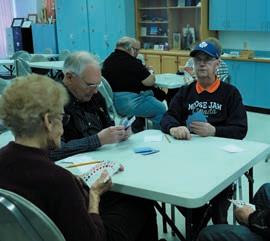 By Saddman Zaman Moose Jaw Express/MooseJawToday.com
By Saddman Zaman Moose Jaw Express/MooseJawToday.com
fleboard and pickleball are the most popular.
“Everybody’s just glad to be back,” she said. Exercise classes run twice a week on Mondays and Thursdays, one-hour workout sessions consisting of stretching with stretch bands and lifting weights with the support of chairs.
A learning session for pickleball takes place on Wednesdays.
Anyone can join in shuffleboard. The members are always more than happy to teach newbies how to play this game.
There is also the dice game Mahjong played on Wednesdays.
Fridays, there are quilt, painting classes and art classes. She also mentioned there are plans of introducing pingpong within the next couple
also be holding a Chili-making competition sometime this spring. Keep your eyes and ears open for the date; individuals will need to sign up to compete and judged; may the best Chili-maker win!
“We have got three people who think they are going to win, so it should be a fun afternoon,” said Parsons.
Anyone interested in becoming a member of the MJDSCA can tour the facility in advance. The tour is an opportunity to get to see what’s available at the T. Eaton Centre, and three visits to the centre are allowed without becoming a member.
of weeks. The facility is also awaiting a Texas Hold’em license so they are able to host their own poker games. The restaurant is a very popular stop, located right in the heart of the building and is open to the public; there’s always something special to eat. Breakfast is served from 8:00 a.m. to 10:00 a.m. daily; lunch starts at 11:30 a.m. Tuesdays, there is fresh pie available and on Thursdays, cinnamon buns are the treat of the day. It always advisable to pre-order.
During the month of January, a military whist tournament will be held, and in February, the plans are to hold a shuffleboard tournament.
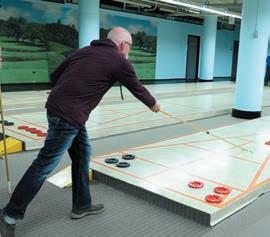
The Seniors Association will

MJDSCA is currently taking bookings for their XYZ auditorium. If you become a member, you will get a 10% off. Bookings include mainly the auditorium space. If you want to use the catering or the projector, there are additional charges; the facility also has a bar and liquor licensing which can also be rented out.
Presently, regular memberships are $40; enhanced memberships are $60. To become a member, you must be at least fifty years old. She is hoping that all membership registrations for the year are completed by the end of January.
To book the auditoriums or make appointments for becoming a new member simply call the Moose Jaw & District Senior Citizens Association office during their working hours at (306)-694-4223 or email Tanya Legare at mjsenior@shaw.ca.
WWW.MOOSEJAWEXPRESS.COM 28 710H Main St. N. • 306.693.4455 LOCATED IN SHOPPERS DRUGMART STRIP MALL, Moose Jaw
Seniors are playing shuffleboard which is a very popular sport among them.
Seniors are playing cards inside the facility.
Moose Jaw Funeral Home still locally-owned and always ready to assist
By Jason G. Antonio, Moose Jaw Express
she will ensure that the business continues to serve families as it has always done. Being community owned means it’s possible to offer services that are more personal to people. The business contains a crematorium that allows families to choose a different way to bury their loved ones. However, cremation numbers have remained roughly the same for a while, she continued.
Besides a crematorium, Moose Jaw Funeral Home also has an indoor columbarium. Ellis noted that this option is popular with families, and the business plans on expanding the facility in the next few years.
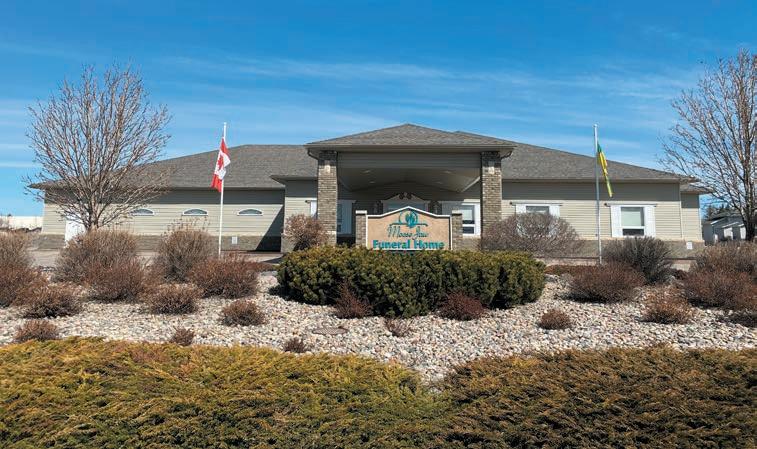
After working at Moose Jaw Funeral Home full time for eight years as a director, Michelle Ellis decided to purchase the business to ensure it remained community-owned and -operated. The opportunity to purchase the funeral home arose in February 2021, so Ellis jumped at the chance to buy the business from her boss and be-

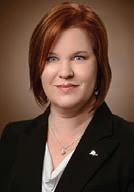
come sole owner, she explained. “The Funeral Home has always been locally owned. This is very important to me and that has not changed with the new ownership. We are still locally owned and operated.” she said. Ellis hasn’t made any big changes to Moose Jaw Funeral Home and doesn’t plan to either. Instead,
“Myself and my team of professionals will continue to serve the families we have the honour of assisting,” she added. “And being a locally owned business is important to the community itself.”
Moose Jaw Funeral Home is located at 268 Mulberry Lane and can be contacted at 1.877.693.4550. For more information, you can visit their website at https://www.moosejawfuneralhome.com





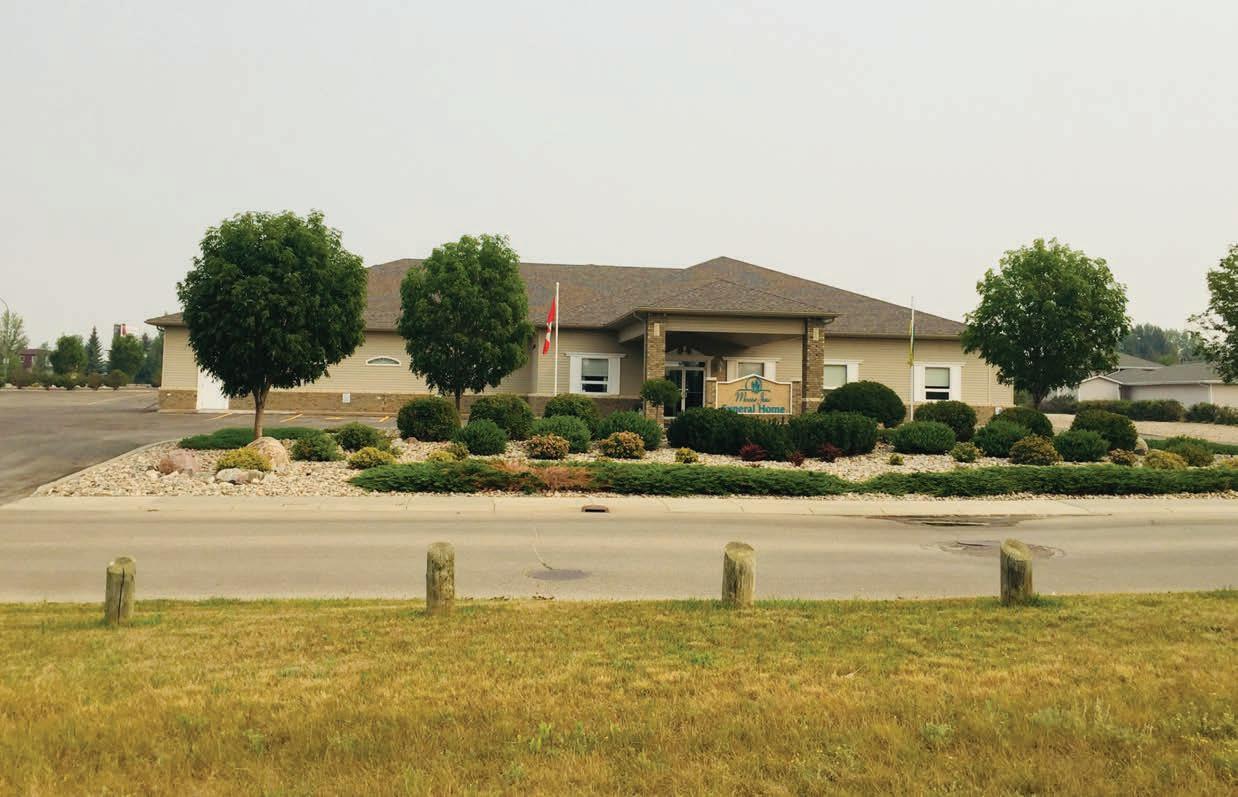 Michael Penner
Andrew Pratt Terri Lamb
Michelle Ellis
Gary McDowell
' '
Michael Penner
Andrew Pratt Terri Lamb
Michelle Ellis
Gary McDowell
' '
Top takeaway: Planning helps ensure you enjoy a satisfying retirement.

Chess coaches often drill a rule into the heads of beginning students: never make a move without having a plan. There are lots of differences between saving for retirement and playing chess, but the importance of planning applies to both. Retirement planning focuses your mind. It provides you with an outline of where you want to go and how you’ll get there. It makes it easier to adapt to unexpected events. Think of checkmate as a happy, secure retirement in which you have the financial freedom to live your life the way you want.
Making a retirement plan starts with asking yourself a lot of questions. Some of these questions may even be uncomfortable – some people don’t like to think too far ahead – but if you ask them now it can benefit you later.
First step: Determine your current financial priorities. Your financial priorities probably vary depending on how far you are from retirement. Maybe you need to pay off student debt, or perhaps you need to pay for daycare. Maybe you need to support your kids financially in university. Once you have outlined your priorities, you can decide how much money you can devote to a long-term savings plan, which can include contributing to government savings vehicles such as RRSPs or TFSAs, investing in real estate or putting money into an employer-provided pension scheme.
Second step: Develop the retirement plan.
This step is where the heavy lifting occurs. It involves taking stock of your finances, identifying what kind of lifestyle you want in retirement and identifying potential sources of income to fund your retirement. Because you identified your priorities in the first step, you can now see how much you can start saving to create the retirement you want. You may be pleasantly surprised or awkwardly humbled. But at least you know what you have to do going forward.
Third step: Update the retirement plan.
Life is a long string of expected and unexpected events. It’s the latter that retirement planning can really help deal with. Investing, including building a diversified portfolio, is the foundation of achieving long-term financial goals. Younger investors have more time before they retire, so they can generally take on more risks with their investments. Investors closer to retirement should generally be more conservative. The last thing you want to do is lose your hard-earned savings to an unexpected dip in the stock market.
It’s very important to review your retirement plan on a regular basis. Remember that your financial situation can change suddenly. And beyond world-changing events, the rhythm of life is full of financial ups and downs – these include job loss, serious illness or sudden windfalls like an inheritance. Retirement planning provides you with space to adjust your expectations and your actions.
While it’s important to arm yourself with as much knowledge as possible to make sure you are in control of your retirement destiny, it doesn’t hurt to seek help. You could consider working with a financial planner to help build your retirement plan.
https://www.fidelity.ca/en/investor/investorinsights/ planningforyourretirement/?gclid=EAIaIQobChMIvYrX0OG6_AIVhwKtBh25Hg8HEAAYAiAAEgJhP_D_BwE&ef_id=EAIaIQobChMIvYrX0OG6_AIVhwKtBh25Hg8HEAAYAiAAEgJhP_D_BwE:G:s&s_kwcid=AL!10784!3!615569953132!p!!g!!financial%20advice%20 for%20retirement!15112666022!130830645964
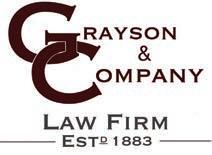
WWW.MOOSEJAWEXPRESS.COM 30
Why you need a retirement plan, and what you need to make one
CARE
306-693-6176 •ESTATE PLANNING WILL/POWERS OF ATTORNEY/HEALTH
DIRECTIVES
REAL ESTATE
•RESIDENTIAL & COMMERCIAL
TRANSACTIONS
•GENERAL LITIGATION CLAIMS
LAW
LAW
& MUNICIPAL LAW PROVIDING LEGAL SERVICES TO MOOSE JAW AND AREA FOR OVER 140 YEARS
•FAMILY LAW & DIVORCE •MEDIATION INCLUDING FAMILY LAW MEDIATION •COMMERCIAL & CORPORATE/SMALL BUSINESS
•AGRICULTURAL
•ADMINISTRATIVE
How to Ease a Loved One’s Transition into a Nursing Home
Life in a nursing home is different, but it’s not the end. A person can continue to feel loved and cared for, and offer their love and care in return.
Putting a family member in a nursing home may be one of the toughest decisions families have to make, and unfortunately, the decision for many doesn’t tend to feel “good.” Many hope for a long life of independence, and becoming immobile, senile, or dependent on others is a thought people simply like to avoid. As a psychotherapist who works in a nursing home, I often encounter family members racked with guilt, which has led me to analyze the experience.
Help them through the adaptation phase
Many of the nursing home residents I speak with openly express their discomfort at being in a nursing home, and some manifest symptoms of depression as a result. In my experience, it is typical for a new resident to struggle with this new environment. After a (sometimes long) transition period, many will begin to adjust.
According to an article published in Nursing Research and Practice, this is called the “adaptation phase,” with the typical period of adjustment being cited as three to six months.
During the adaptation phase, a new resident may be struggling to respond to new rules and expectations of the nursing home staff, as well as learning to live with a new group of people. The adjustment period can be really tough, and unfortunately, some seniors may never fully adjust to a nursing home environment.

Help them avoid a ‘loss of control’
There are a number of ways family members, friends, therapists, and staff can help improve the quality of life of nursing home residents. I am focusing on family members in this article, but if you are looking at this problem from a different perspective, please utilize this advice to help a nursing home resident you care about.
Many nursing home residents I’ve spoken with express feelings of a “loss of control” when they don’t have any say in the fa-
cility where they end up living. With that said, one of the first ways to help a senior make the transition to a nursing home is to give the person a chance to evaluate options and make decisions regarding the new residence. Finances may be a huge barrier when looking for care, but giving a family member the right to shop around and choose a residence can help foster a sense of independence and control from the beginning of the transition.
Initially, it can be intimidating to join the other residents in activities, but engaging in social activities and continuing ones enjoyed before the transition can positively affect a resident’s sense of happiness. If you’re a family member, go over the schedule of activities with your loved one and help pick out some that appeal to him or her.
A window can make a big difference in a person’s living space within a nursing home. An article in the Journal of Aging Research says that a window view doesn’t even need to overlook plush greenery to be beneficial. It can simply offer something to look at, such as pedestrians, wildlife, or any landscape. If the resident’s individual room does not offer a window, access to a private space with a window and a view may offer similar benefits. Adding plants to the resident’s room can also create a more personal environment and take away from the medical feel of the room.
Personal items from the resident’s previous home can also create a sense of familiarity and mastery over the experience. This may include pictures, furniture, or comfort items such as blankets. Allowing the resident to personally pick out items to bring to the nursing home can also contribute to the sense of control that can be so important to a healthy adjustment to nursing home living.
Help them stay social
One of the best ways to help your family members ease into a nursing home is simply to listen to them. Often, seniors at the nursing home I work in tell me they don’t tell their children or family members about their feelings of depression because they don’t want to burden them. Others say they attempt to tell their family members, but their feelings are dismissed. Many new nursing home residents will experience depressive symptoms and feelings of hopelessness as part of the adjustment phase. Allow your family member to talk about this experience so he or she doesn’t feel further isolated. This may evoke your own guilt or a desire to fix the situation, but remind yourself that your loved one has limited people to talk to, especially about emotions. Your ability to sit and listen will help demonstrate that you care and are available for support. Lastly, and perhaps most important, provide a sense of hope for your family members. Consider what might increase comfort in the home and offer some options. Listen to their struggles without defending them. Offer them your time and company, share pictures of the family, bring food from home, and remember to tell them how important they are to you. Life in a nursing home is different, but it’s not the end. A person can continue to feel loved and cared for, and offer their love and care in return.
Life in a nursing home is different, but it’s not the end. A person can continue to feel loved and cared for, and offer their love and care in return.
by Alexis Hanse, LCSW https://www.goodtherapy.org/blog/howto-ease-loved-ones-transition-into-anursing-home-0105164
WWW.MOOSEJAWEXPRESS.COM 31
Moose Jaw Co-op Pharmacy
500A – 1st Avenue N.W. 306-692-0988 Pg 9
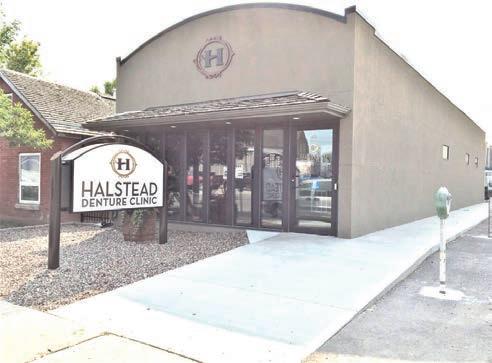
7 Thatcher Dr. East 306-692-2224
Moose Jaw Family Pharmacy # 6- 58 Highland Road 306- 694-5007

Moose Jaw Main Street Pharmacy #115 - 361 Main St. North 306-691-0101
Pharmasave 212 Main St. North 306-692-6433 Pg 37

890B Lillooet St. West 306-692-2900
Rexall Drug Store 701 Main St. North 306-694-5556
Safeway Pharmacy 200 - 1st Avenue N.W. 306-694-2112
Shoppers Drug Mart 710 Main St. North – Unit F 306-693-5184 Pg 3


428 Lillooet St. West 306-691-4870
Walmart Pharmacy 551 Thatcher Dr. East 306-693-3284
WWW.MOOSEJAWEXPRESS Pharmaceutical
Services in Moose Jaw providing over-the-counter & prescription drugs
Call Brent Waldo P.Eng ODLAW PROJECTS 40+ Years Experience Construction Services New School Products ... Old School Values New Construction Renovations/Maintenance Engineering jazziskier@gmail.com Tooth loss can cause a host of physical and emotional issues. You don’t have to suffer, we are here to help you! NEW PATIENTS WELCOME No Referrals Neccessary We offer you a variety of Dentures to suit your needs! Accepting most Dental Insurances
Canada Pension Plan (Includes Canada Pension Plan Retirement, Disability, Child and Survivor Benefits)

Payment dates:
• January 27, 2023
• February 24, 2023
• March 29, 2023
• April 26, 2023
• May 29, 2023
• June 28, 2023
• July 27, 2023
• August 29, 2023
• September 27, 2023
• October 27, 2023
• November 28, 2023
• December 20, 2023
Benefits Payment Calendar

Old Age Security (Include Old Age Security pension, Guaranteed Income Supplement, Allowance and Survivor Allowance)

Payment dates:
• January 27, 2023
• February 24, 2023
• March 29, 2023
• April 26, 2023
• May 29, 2023
• June 28, 2023
• July 27, 2023
• August 29, 2023
• September 27, 2023
• October 27, 2023
• November 28, 2023
• December 20, 2023
Veterans Affairs Canada Disability pension
Payment dates:
• January 30, 2023
• February 27, 2023
• March 30, 2023
• April 27, 2023
• May 30, 2023
• June 29, 2023
• July 28, 2023
• August 30, 2023
• September 28, 2023
• October 28, 2023
• November 29, 2023
• December 21, 2023
Goods and Services Tax/ Harmonized Sales Tax (GST/HST) credit
Payment dates:
• January 5, 2023
• April 5, 2023
• July 5, 2023
• October 5, 2023
WWW.MOOSEJAWEXPRESS.COM 33
COMPLETE PLUMBING, HEATING SALES & SERVICE 306.694.0028 • 301 River St. W. Moose Jaw • www.midwestefficiency.ca • Forced Air Heating • Ventilation • Air Conditioning • Temperature Controls • Planned Maintenance • Boiler Service / Installation • Faucets / Fixtures / Toilets • Furnace Service / Installation • Hot Water Tanks • Gas Fitting • Plumbing • Radiant Floor Heating • Sewers / Drains • Estimating / Sales • Retrofits • Pumps
Find a cause or three: How to get involved in community-building
By Gordon Edgar, Moose Jaw Express/MooseJawToday.com
Della Ferguson is a passionate advocate in the community of Moose Jaw for the unhoused, the grieving, and those struggling with mental health and addictions.
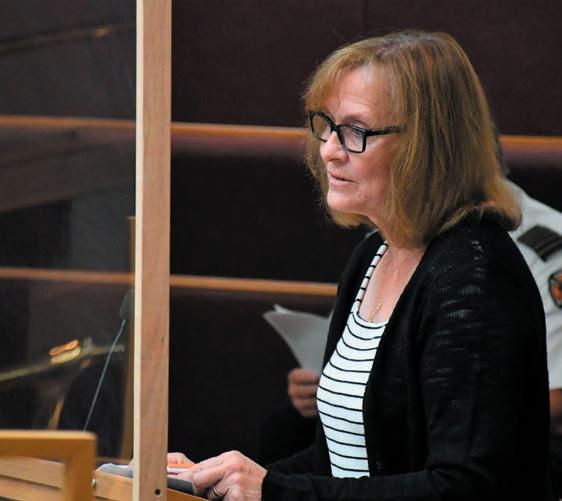
Ferguson devotes much of her time and energy to leading, participating in, and fundraising for organizations such as Square One Community, Journey to Hope Moose Jaw, Seniors’ Centre Without Walls, and Heartland Hospice. She finds purpose and fulfillment in her volunteer work.
“I think a lot of it has to do with how I was brought up,” Ferguson said. “My mom was very involved in everything, and I think that’s what she mentored. That’s what you do, you get involved and be part of the community and support the wellbeing of the community.
“I think that life is about making meaning, and so being involved brings meaning to my life, and a sense of purpose and direction.”
Through her work as a grief supporter and funeral celebrant at W.J. Jones & Son Funeral Home, Ferguson has spent hundreds of hours sharing compassion and understanding through some of the hardest moments of people’s lives.
The grief support groups she runs at W.J. Jones & Son include groups for grieving parents, spouses, and those who have lost someone to suicide.
Ferguson recently led the 25th edition of W.J. Jones & Son’s Mourning Star Christmas service — an outreach event she began shortly after starting with the funeral home.
Journey to Hope, founded in 2007, raises tens of thousands of dollars each year for suicide prevention efforts. In addition to supporting a youth chapter that is active in local high schools, Journey to Hope helps provide suicide hotline training, screening for mental health disorders, and raises awareness to help combat socio-cultural stigma that could prevent individuals and/ or those who care about them from seeking relief.
In June, local organizers of a rucksack march in Wakamow Valley raised $10,000 for Journey to Hope. The annual event that Journey to Hope holds in Crescent Park each September featured local speakers who have lost someone to suicide, and revealed a new initiative — offering training for those who want the skills to intervene in mental health crises.
Through Heartland Hospice, Ferguson is helping to build hospice palliative care capacity in Moose Jaw. The Heartland Hospice board, on which Ferguson serves as secretary, hopes that 2023 will see the grand opening of a completed hospice wing at the Saskatchewan Health Authority Pioneer Lodge facility. Hospice care is about making the last few months of a person’s life as comfortable, pain-free, and compassionate as possible.
Heartland Hospice Moose Jaw installed the first dedicated hospice bed in the city. When renovations at Pioneer Lodge are complete, there will be three such beds.
Heartland Hospice also provides memorial events at Pioneer Lodge, such as the first annual Heartlights memorial service that took place last August, and end-of-life resources, education, and
seminars for anyone who needs them.
Seniors’ Centre Without Walls (SCWW) is an over-the-phone arts program that has grown to support an active community in Moose Jaw and throughout the surrounding area.
Although Ferguson recently had to step away from her involvement in SCWW due to time constraints, she highly recommends the program as “an amazing support network for seniors.” SCWW works with partners such as the Moose Jaw Museum & Art Gallery to provide clients with art supplies. Then, they can call in to a conference line and an instructor leads them through the activity. Group participants and leaders say the groups always turn into conversations as people get to know each other and become friends, which helps to combat loneliness and isolation.
“There are so many people who do such big amounts of work in regards to seniors,” Ferguson said. “Seniors are such valuable storytellers and have so much to teach us.
“It’s so important that we value them and their stories and their journeys, right to the end. Right to the very end, to give back to them in every way possible.”
Would you like to get involved in your community? Community-based organizations are always looking for more help. Find more information from the following websites:
• Journey to Hope - journeytohope.synthasite.com/
• W.J. Jones & Son bereavement support groups - wjjonesandson.com/section/bereavement-support
• Seniors’ Centre Without Walls - scwwmoosejaw.com
• Heartland Hospice Moose Jaw - heartlandhospicemj.ca
• Square One Community, Inc. - squareonehousingmoosejaw. com
WWW.MOOSEJAWEXPRESS.COM 34
Della Ferguson, chair of Square One Community Inc., speaks to city council.
Photo by Jason G. Antonio
Motion – Making life accessible for our community through mobility & home accessibility solutions

Located
Moose Jaw, Motion (previously know as Easy Care Living Centre and Golden Mobility & Rehab) offer a wide range of life-changing equipment to make life accessible such as wheelchairs, walkers, mobility scooters, adjustable beds,
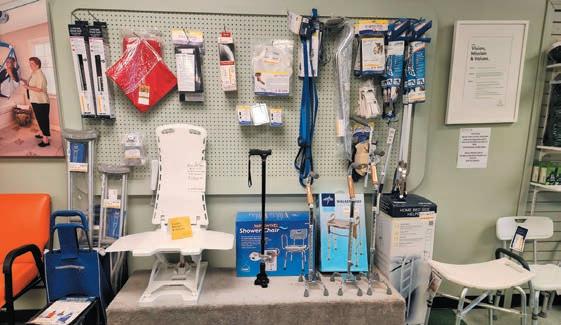
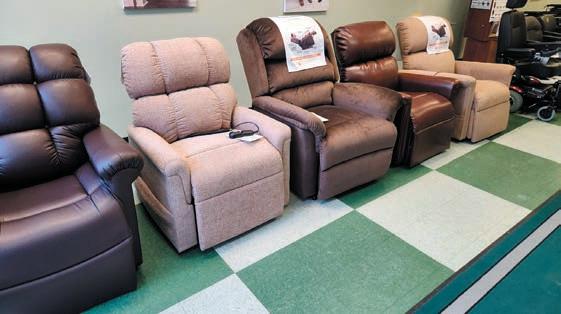

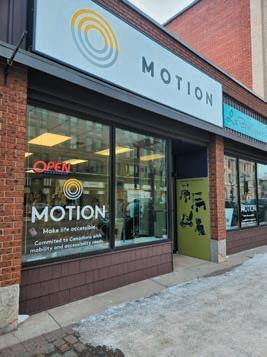

bathroom safety items, stairlifts, ceiling lifts, and more for clients of all ages. Whether a client is being fitted for equipment for the first time, needs an equipment repair or rental, or is looking to upgrade their solution, Motion’s knowledgeable experts are ready to deliver real solutions with real impacts. Because Motion isn’t a place, it’s a partnership. Visit motioncares.ca to learn more about Motion’s products and services.

WWW.MOOSEJAWEXPRESS.COM 35 Real solutions. Real impacts. Wheelchairs • Walkers • Mobility Scooters • Stairlifts • Bathroom Safety • More motioncares.ca Motion (formerly Golden Mobility & Rehab) 319 Main Street N (306) 691-0550 moosejaw@motioncares.ca M-F 8:30am - 5:00pm
at 319 Main St. N in the heart of downtown
A Guide To The Best Exercises For Seniors
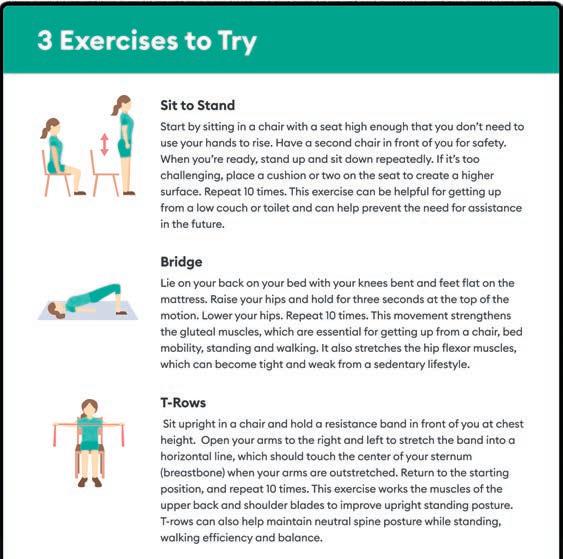
Exercise is important in all phases of life, but for seniors, it’s critical to maintaining independence, among other benefits. When it comes to determining the best exercises for seniors, variety is key. Adults of all ages—but especially people older than 65—should focus on a combination of strength and mobility exercises, as well as balance exercises and aerobic activity. However, the best exercises for seniors are the ones they want to do and will do consistently.
Why Exercise Matters for Seniors
Exercise is important for older adults (age 65+) because being physically active makes it easier to perform activities of daily living (ADLs), including eating, bathing, toileting, dressing, getting into or out of a bed or chair and moving around the house or a neighborhood. Physically active older adults are also less likely to fall, which can lead to serious injuries. Exercise improves muscle strength and bone density as well, which is especially important for women since they lose bone density at a faster rate after menopause than men. Meanwhile, the benefits of exercise for the heart and lungs help promote overall health and offset some risks for chronic illnesses and disease.
Best Aerobic Exercises for Seniors
Older adults should do at least 2.5 to 5 hours of moderate-intensity aerobic activity a week, ideally spread out over several days. Moderate-intensity aerobic activity includes brisk walking, cycling, swimming, dancing and nature walks.
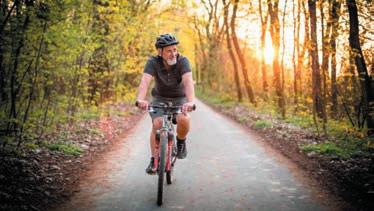
Here are some of the best aerobic exercises for seniors:
• Walking: Walking is one of the best forms of cardio for older adults and can be modified to match the pace, distance or time that feels right for the individual. It requires good balance, but can be effective if a person uses a cane or walker.
• Cycling: Whether using an outdoor bicycle or a stationary bike, cycling requires the use of larger muscles, including the quadriceps and hamstrings, leading to increased blood flow and demand on the heart and lungs. Like with other forms of cardio, when this demand is repeated, the body adapts by increasing its capacity to tolerate the added load, making the exercise beneficial for the heart and the lungs. Cycling is also a non-impact activity, which can be beneficial for anyone who needs to reduce ground reaction forces during exercise to help with joint or muscle pain or dysfunction.
• Dancing: Whether you’re into Zumba, line dancing or tango, moving your body (including your hips) with continuous dancing definitely counts as cardio. Dancing not only elevates the heart rate, but also improves balance, strengthens multiple large muscle groups and lifts your spirits. Pair
it with a partner or group, and you’ve got yourself a social and physical workout.
• Nature Walks: Whether along a creek, at the beach or on a mountain, walking in nature can challenge the body’s proprioception, or awareness of itself in space. Walking on various terrain can improve strength, agility and balance for safer movement overall. Spending time outside may also lead to positive psychological effects, such as reduced anxiety and improved mood.
Best Strength Training Exercises for Seniors
While some body changes like reduced muscle and bone mass are inevitable the older you get, staying strong and active can delay them to an extent. Incorporating regular resistance training can be accomplished with your bodyweight, free weights and resistance bands.
When it comes to picking the best strength training exercises for seniors, consider activities necessary for daily living. For instance, one of the best indicators of morbidity and mortality is the ability to stand up from a chair without using your hands to help in any way. This test means not pushing on the arms of your chair or pushing against the tops of your thighs with your hands when standing up. The best way to work on this skill is to practice it, as well as use the following strength exercises:
Best Flexibility Exercises for Seniors
Flexibility is important for independence, mobility and the ability to strengthen the body throughout its full range of motion. Flexibility is critical for decreasing the energy cost of standing and walking as we get older. Stretches that target the shoulders, hips and legs—body parts that commonly contribute to balance problems and gait compensations—are key.
Begin with the following exercises:
WWW.MOOSEJAWEXPRESS.COM 36
Best Balance Exercises for Seniors

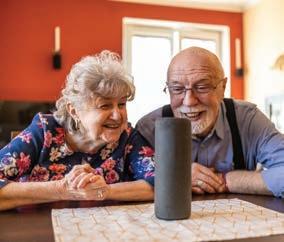

As general health declines with age, falls become more common, leading to fractures, head injuries and other problems that affect both mental and physical health. Multiple systems work together to help us maintain our balance, including input from vision, the inner ear and touch systems, which are integrated into the brain and then translated into motor output through our musculoskeletal systems. As we age, these
systems can function less well, but working to maintain them can help prevent the rate of decline.
Use caution when attempting these exercises, and have a spotter nearby if your fall risk is high.
• Single Leg Stand with a Stool: Stand at the kitchen sink, holding on to the front edge of the sink, and place one foot on a low stool. Find your balance as you stand tall, hovering your hands just off the surface of the sink and, if steady, lifting the foot up and down from the surface of the stool. For a more advanced move, stand at the kitchen counter on one leg, hovering your hands over the counter to catch yourself if you become unsteady.
• Tai Chi: According to a systematic review on the effects of tai chi on people with chronic conditions, this ancient exercise form has many health benefits, including improving balance. Tai chi helps the body improve awareness of itself in space, leading to reduced risk of falls.
• Lower Body Strength Training: Research suggests strengthening the hips and legs can lead to improved balance and reduced risk of falls. Incorporate the sit-to-stand exercise, squats and heel raises (standing and shifting up and down on your toes 10 times twice a day) to maintain strength in your hips, quads and calves.
By Rachel Tavel, D.P.T. https://www.forbes.com/health/healthy-aging/ best-exercises-for-seniors/




WWW.MOOSEJAWEXPRESS.COM 37
OPEN 365 DAYS A YEAR 212 Main St. N 306-692-6433 MON - FRI 9AM - 8PM SAT. 9AM - 6PM SUN. & HOLIDAYS 11AM - 6PM 890B Lillooet St. W 306-692-2900 MON - FRI 9AM - 5:30PM SAT. 9AM - 1PM COMPOUNDING PHARMACY ORDER YOUR REFILLS ONLINE AT WWW.PHARMASAVE.COM Free Prescription Delivery Flu Shots Available at both Locations Home Health Care Products Gift Ideas 2 Convenient Locations skseniorsmechanism.ca Opportunities for businesses to provide needed products and services to older people.
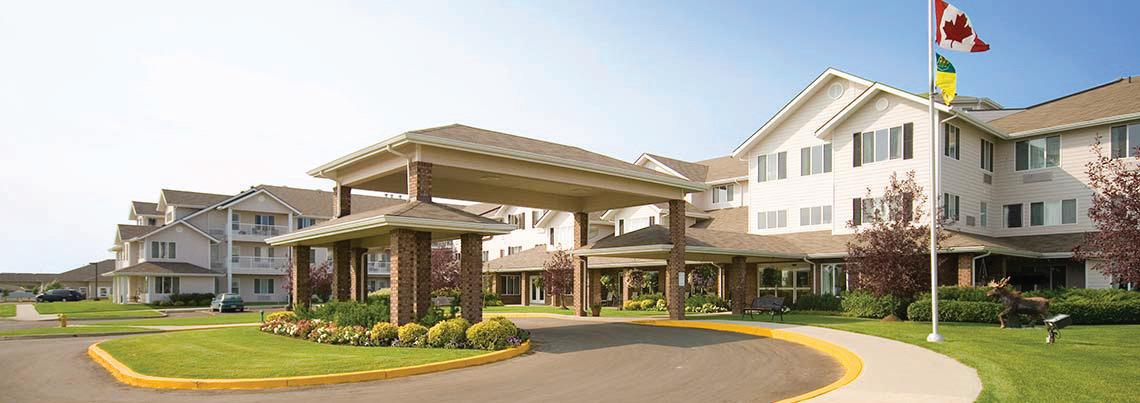

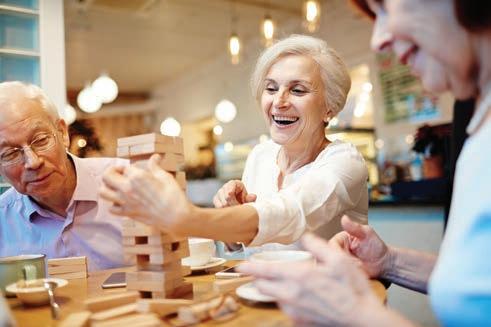


WWW.MOOSEJAWEXPRESS.COM 38 At Mulberry Estates, we offer you an all-inclusive lifestyle that allows you more time to do what you love. All you need to do is relax and enjoy the services and amenities designed to make your life less stressful and more fulfilling. Leave the cooking, cleaning and chores to us! Book a tour today and see why so many seniors are choosing Mulberry Estates. Call 306.694.5020 for Virtual or In Person Tours. Short term stays available. Pets are warmly welcomed. MULBERRY ESTATES Where Retired Meets Inspired 220 Mulberry Lane | Moose Jaw | MulberryEstates.ca
Big year for Heartland Hospice in work towards dedicated
end-of-life beds
By Gordon Edgar, Moose Jaw Express/MooseJawToday.com
out of Regina to develop blueprints for the hospice wing at Pioneer Lodge. Those plans will be going out for tender within the month.
• In February, Moose Jaw Women Who Care held a fundraiser featuring Heartland Hospice chair Angela Sereda and raised $2,521.
• The Mad Greek Restaurant’s Rib Night Fundraisers in March and December raised a combined total of $4,285.
The non-profit organization Heartland Hospice Moose Jaw was established in Nov. 2014 to improve and expand palliative care options in the city.
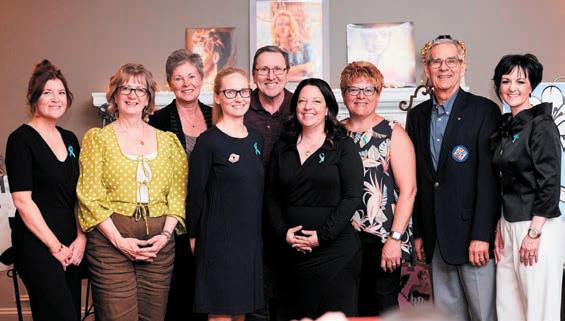
Palliative care is the relief of symptoms and suffering caused by a severe illness — in other words, the improvement of a patient’s quality of life. It is a separate concept from curative care, which seeks to stop the illness.
Hospice care is a form of palliative care designed specifically for the final six months of a person’s life.
The ultimate goal of Heartland Hospice Moose Jaw is to establish three dedicated hospice beds at the Saskatchewan Health Authority’s (SHA) Pioneer Lodge facility. The plan will require extensive renovations and includes a family resource centre, serenity garden, sacred space, separate entrance for family members, and palliative training for Pioneer Lodge staff.
Sara Bryan, vice-chair of the Heartland Hospice board, said 2022 was an extremely busy year. In particular, on May 26, at Heartland Hospice’s “Evening Under the Stars” Gala Fundraiser, the organization announced an official capital campaign for Pioneer Lodge renovations.
The first major campaign sponsor was Conexus Credit Union, which made a $20,000 donation.
“Thanks to fundraising and community support via donations of all sizes we are making tremendous progress towards our campaign goal,” Bryan said. “Some donors we would like to thank for 2022 include, but are by no means limited to, Babich Farms, Golden West Trailers and Equipment, the Jameson family, Mark Gilles, the Fergusons, the Seamans, the Tonis, and the Ackerman family.
“We have also been extremely touched that some families have chosen us as a donation in lieu of flowers at the passing of their loved ones.”
Bryan said that Heartland Hospice’s 2022 highlights include:
• The board worked in conjunction with the SHA, Ministry of Health, Pioneer Lodge, and Alton Tangedal Architect Ltd.
• June saw the completion of phase 2 of the Serenity Garden, with a concrete pad and sidewalk donated by Cypress Concrete, the completion of a beautiful gazebo donated by the Ebert family with furnishings donated by Medavie West Health Services, and much more work on the garden achieved, including planting many new shrubs donated by Keon’s Garden Centre.
• In July, the first annual ‘Heartlights Memorial Ceremony’ in the Heartland Hospice Serenity Garden honoured the memory of those whose final days were spent on Pioneer Lodge’s Memory Lane and hospice room, those who worked as caregivers for their needs, and their beloved who grieve.
• In July, Heartland Hospice granted their third My Wish, a program that tries to fulfill the final wishes of hospice patients.
• September saw the ‘Tim Horton’s Smile Cookie’ campaign, featuring notorious Moose Javians from the Moose Jaw Warriors hockey team to first responders, Mayor Clive Tolley and the local MLAs, teachers, reporters, bankers, and businesspeople. The campaign raised $35,866 – more cookies were sold than there are people in Moose Jaw.
• In October, the Moose Jaw Firefighters hosted a Halloween Cabaret with the proceeds of $5,643 being donated to Heartland Hospice. The Moose Jaw Shriners Club did the bartending and Family Pizza donated the pizza.
• In December, a memorial tree went up in front of Pioneer Lodge to cheer residents and remember loved ones. The tree was once again sponsored by Moose Jaw Co-op. Bryan said she and the rest of the board hope that 2023 might be their most successful year so far.
“We are optimistic,” she added, “that, barring any unexpected delays, construction will be completed in time for a fall grand opening!”
Heartland Hospice’s Capital Campaign is still ongoing and seeking sponsors. For more information, see the website at heartlandhospicemj.ca or phone 306-690-8699 or email community@heartlandhospicemj.ca to have a donor package mailed out.
WWW.MOOSEJAWEXPRESS.COM 39
HHMJ board members at the May 26 fundraising gala: (L-R) Amanda Dowling, Trish Gottselig, Marina Harder, Dr. Kerri Hetherington, Kim Robinson, Sara Bryan, Donna Ackerman, Dale Toni and Angela Sereda. Missing: Della Ferguson and Idowu Adetogun (Andy Hamilton Photography)
Thronberg Director of Care



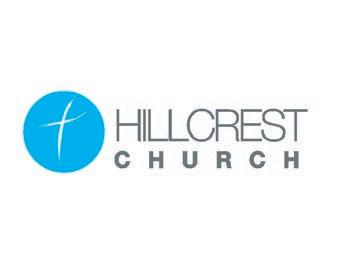




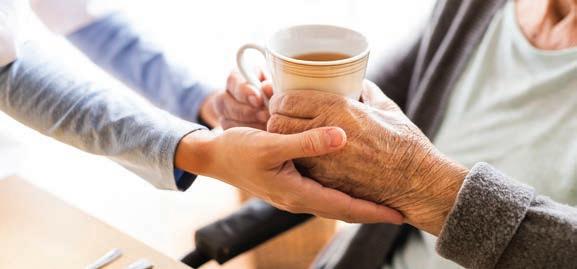
WWW.MOOSEJAWEXPRESS.COM 40 Customized care as individual as you The care you need. The independence you want. Talk to us about making the Chateau your new place to call home. 306-693-2323 At the Chateau, we offer a wide range of services so couples can age in place. One spouse can live independently in a one bedroom suite while the other receives more advanced care. Even when needs are vastly different, couples can still live under the same roof and see each other every day. Gary
For Tomorrow may be too late... DON’T HESITATE DON’T WAIT Name B Blood B Stripes Word YOUR My people must cease their silence...Adavart Visit one of our Churches this Sunday! Sunday Celebration Service 1550 Main St. N 306-692-5600 www.hillcrestmj.com In-Person & Livestream 10:30 AM Special Programs for Kids & Teens Search "Hillcrest Church in Moose Jaw" Sunday Service Times @8:30am, 10:00am and 11:30am Minto United Church 1036 7th Ave. NW • 306-693-6148 Worship Service Sundays 10:30am No Services in July www.mintounited.ca • Facebook at Minto United Moose Jaw
First Baptist



SENIOR MARRIAGE


Two elderly people were living in a Florida mobile home park. He was a widower and she a widow. They had known one another for several years.



One evening there was a community supper in the big activity center. The two were at the same table, across from one another.
As the meal went on, he made a few admiring glances at her and finally gathered his courage to ask her, “Will you marry me?”
After about six seconds of ‘careful consideration,’ she answered. “Yes. Yes, I will.”









The meal ended and, with a few more pleasant exchanges, they went to their respective places. The next morning, he was troubled. “Did she say ‘yes’ or did she say ‘no’?” He couldn’t remember. Try as he would, he just could not recall. Not even a faint memory. With trepidation, he went to the telephone and called her. First, he explained that he didn’t remember as well as he used to. Then he reviewed the lovely evening past.
As he gained a little more courage, he inquired, “When I asked if you would marry me, did you say ‘Yes’ or did you say ‘No’?” He was delighted to hear her say, “Why, I said, ‘Yes, yes I will’ and I meant it with all my heart.” Then she continued, “I am so glad that you called because I couldn’t remember who had asked me.”
WWW.MOOSEJAWEXPRESS.COM 41 Walper-Bossence Prof. Corp. Courteous, Professional, Discreet Legal Services 84 Athabasca Street West, Moose Jaw SK www.walperlaw.ca Brenda A. Walper-Bossence, Q. C. Lawyer & Notary Public Bus: (306) 693-7288 Email: brenda@walperlaw.ca Wills and Estates Powers of Attorney and Health Care Directives Real Estate and Mortgages Company and Small Business Dependent Adult Applications Get the legal services you need Make an appointment today COMPLETE CAR CARE AND REPAIR “888 Main St in the Heart of Downtown” Vehicle maintenance, service and repair. Great selection of tires including Call 306-691-0080 Church Of Our Lady 566 Vaughan St 306-692-2950 Masses: Saturdays 7pm Sundays 10am Salvation Army Moose Jaw Community Church Worship Services: Sundays 11am 2 Wintergreen Drive or Facebook live stream @thesalvationarmyinmoosejaw Sundays 6pm 175 1st Ave NE 306-694-0045 Pastors - Lieutenants Lester & Almeta Ward Visit one of our Churches this Sunday! 60 Athabasca Street East Phone: 306-692-0533 st.andrews.mj@sasktel.net www.standrewsmoosejaw.ca Worship Services Sunday Mornings 10:30am Sunday School is held from September to June We proudly accept
from
of life You are welcome to join us in Prayer, Praise, Worship & Study to Glorify God Pastor: Scott Elger Sunday Service 11am 1010 Main St N • 306-692-3137
persons
all walks
Church www.fbcmoosejaw.com
Age-Friendly Sask providing awareness, advocacy, resources for seniors
By Gordon Edgar, Moose Jaw Express/MooseJawToday.com
“There are numerous social and economic benefits to building a community that meets the changing needs of residents as they age.”
The project’s first priority is making sure seniors in Moose Jaw have the information they need. They have partnered with Zion United Church to create a knowledge bank for that purpose.
“The first grant was for setting up a knowledge bank in a physical place, which would be Zion Church,” Boyczuk said. “We will hire a co-ordinator (to set up) a resource bank of agencies that support seniors. What is now available? What do we need?
“It’s starting at the beginning; somebody needs to catalog these programs and help people access them.”
That grant provides $20,000 to set up that resource, which should be completed in 2023.
As we all inevitably age, staying independent and self-sufficient for as long as possible is important both societally and for an individual’s mental and emotional health, says Christine Boyczuk.
That’s why she and Gillian Froehlich lead Moose Jaw’s chapter of Age Friendly Saskatchewan, under the umbrella of the provincial Saskatchewan Seniors Mechanism. They received a provincial award for their efforts on Nov. 22.
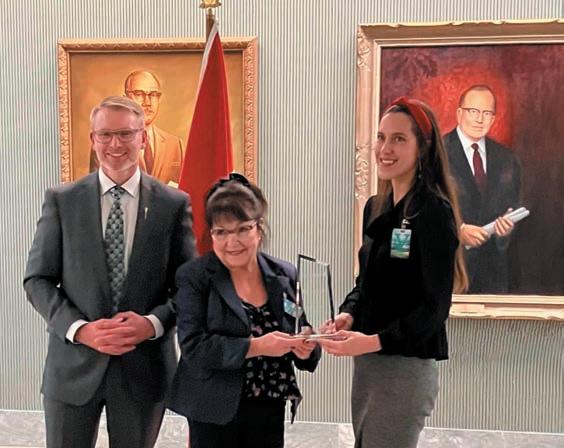
“Not only does it cost a lot to have people in long-term care homes … but it’s just more institutionalization,” Boyczuk explained. “That’s been my study all my life — accepting diversity and increasing how inclusive our communities are.
“What we’ve been doing is gradually de-institutionalizing (our society). For example, people with mental illnesses and children with disabilities … My feeling is that we grow far more if we are in the community, interacting with other people in our own homes and our own environments.”
Boyczuk advocates for less separation, especially in areas such as accessibility. That means changing attitudes, infrastructure, and government policy — not just removing barriers, but innovating.
Supporting seniors as they age has a few important components, but for Boyczuk and Froehlich, the most important one is that the community benefits as a whole when every member of that community is seen, accommodated, and actively invited.
Age Friendly Moose Jaw received official status as part of the Sask Seniors Mechanism in November 2022 by partnering with Moose Jaw Zion United Church for an official grant. That initial application said that:
“All community residents, including older persons, persons with disabilities, children and youth deserve to fully and meaningfully participate in all aspects of community life.
The Age Friendly Moose Jaw committee, which also includes representatives from the community paramedicine program, Moose Jaw Housing, the Moose Jaw Public Library, and others, hopes that as the knowledge bank is developed, they can continue expanding.
Their focus will be twofold based on a 2021 survey: easing loneliness, and clearing snow.
“The big thing that we did during the pandemic was to become recognized. That’s quite a process,” Boyczuk explained. “Part of it is to conduct a survey and, of course, loneliness was a big one, and snow shovelling was another that came up.”
To help combat loneliness, the committee set up a letter writing campaign, a monthly newsletter, and work with Seniors’ Centre Without Walls, which does over-the-phone art programming. The next challenge Boyczuk would like to tackle is community snow clearing. In Saskatchewan winters, going outside can be intimidating for anyone. It is particularly scary for seniors, who have more to fear from ice and deep snow. The fear of going outside can increase isolation.
Age Friendly Moose Jaw hopes to pilot a program similar to Regina’s ‘Snow Angels,’ which organizes neighbourhoods to help keep porches, driveways, and sidewalks clear.
“This has been a movement around the world, really, in all areas, which is, How do we make communities more inclusive and diverse and accepting?” she added. “That’s where I am, you know? I’m aging, and I’m in my own home.
“And I think that I’m far better of being in my own home and being active in my community than otherwise.”
For more information on Age Friendly Moose Jaw, including contacts, visit agefriendlysk.ca/af-moose-jaw-communitypage/.
WWW.MOOSEJAWEXPRESS.COM 42
On Nov. 22, 20223, Minister of Seniors Everett Hindley recognized the work done by Christine Boyczuk and Gillian Froehlich on the Age-Friendly Moose Jaw committee
You can make a difference in the life of a patient.

The Moose Jaw Health Foundation needs the support of donors to help us equip the Dr. F.H. Wigmore Regional Hospital with the best medical equipment in Canada. With your help we can save and enhance the lives of patients.
With the help of our donors, Moose Jaw is home to a modern, state-of-the-art hospital. Individuals, businesses and organizations make generous donations to purchase new medical equipment that will assist our dedicated health care professionals. Only through the generosity of donors the Foundation has been able to provide funding for:
• MRI - a first for rural Saskatchewan
• Orthopedic surgical equipment

• Labour and delivery equipment
• CT Scanner
• Digital Mammography
• Hyperbaric Chamber
• Medical & Nursing scholarships for local students
Every dollar raised will stay in our community. Your gift will make a difference. Please help us equip your hospital today for a healthier tomorrow.
For more information on the Moose Jaw Health Foundation, please visit MJHF.ORG.
Please include the Moose Jaw Health Foundation in your estate plan.
WWW.MOOSEJAWEXPRESS.COM 43
Equip your hospital today for a healthier tomorrow
The Senior Side: The importance of humour in retirement
videos enjoyed better mental health than study participants who did not view the humorous videos.
Laughing and a positive attitude
I find lots of very good reasons why seniors need to maintain a sense of humor in retirement. As our minds and bodies continue to age, it presents either a cause for doom and gloom or an opportunity to smile and say, “Don’t get all weird about getting older. Our age is merely the number of years the world has been enjoying us!” (Maxine, of cartoon fame, created by John Wagner).
Researchers have found a strong link between humor and laughing and physical and mental health. If you are able to laugh regularly and routinely, it will have a favorable impact on your overall health.
Laughing is universal
According to an article in SeniorHomes.com, “Laughing is universal. You can laugh regardless of your age, ethnic background or state in life. Laughing triggers a number of positive physiological responses: relaxation of the entire body, relieving muscle tension and stress; levels of the stress hormone (cortisol) drop and minimize pain and inflammation; release of endorphins, which are natural substances that make you feel happy and reduce the perception of physical pain; and reduction in blood pressure combined with a moderate increase in the heart rate and improved blood circulation and oxygen intake.
Researchers at the College of William and Mary have found that “a wave of electricity sweeps through” the entire brain just before we laugh. This supports the theory that humor can actually help improve cognitive functioning by activating all parts of the brain simultaneously.
Let’s give it a try: “Our pastor came for a visit. He said at my age I should be thinking about the hereafter. I told him, “Oh, I do it all the time. No matter where I am—in the living room, upstairs, in the kitchen, or down in the basement—I ask myself, “Now, what am I here after?” (a little joke I picked up from everythingzoomer.com).
Science of humor
While the science of humor is a relatively new discipline, research studies on the health benefits of laughter consistently demonstrate a connection between laughing and living longer. Researchers know that laughing lowers blood pressure while increasing blood flow and oxygen intake, which in turn has been linked to a decreased risk of heart attack and stroke.
An article from SeniorHomes.com states, “Laughing simply makes people feel better all over. Laughing also can have an anesthetic-like effect on the body, suppressing physical pain and discomfort following a good laugh.”
The ability to laugh is closely tied to having a positive outlook on life, an important protective factor against several mental health issues like depression and anxiety. A Northwestern University study revealed that patients with advanced COPD (chronic obstructive pulmonary disease) who were exposed to humorous
Laughing also promotes emotional well-being, helping people maintain a positive outlook and stable mood throughout the day. A positive attitude has been linked to improved resiliency—the ability to cope with stressful situations in spite of obstacles such as sickness, financial stress or the loss of a loved one.
According to findings on the VeryWellMind.com website, “Aside from the health benefits of laughter, having a sense of humor about life’s difficulties can provide a way to bond with others, look at things in a different way, normalize your experience, and keep things from appearing too overwhelming or scary. Properly developed, a good sense of humor can keep people and relationships strong.”
Ken Budd, executive editor of AARP The Magazine, adds this thought, “It’s clear to me that the people who thrive in their later years are the ones who view each day as an opportunity—a positive attitude to learn, to grow, to savor life.”
A great source of humor is the many jokes about getting older. We laugh because it is something that everyone can understand and experience, now or eventually.
I have another one: “Three elderly men were talking about what their grandchildren would be saying about them 50 years from now. The first man said, I would like my grandchildren to say, ‘He was a successful businessman.’ The second man added, I want them to say, ‘He was a loyal family man.’ Then the third man paused and responded, I want them all to say, ‘He certainly looks good for his age!’” (Guy Thomas).
Laughing promotes good health
While laughing has been shown to help prevent the onset of many physical and mental illnesses, humor is also emerging as one of the most powerful medicines for chronic and degenerative conditions like dementia, Alzheimer’s, Parkinson’s and cancer. To gain the most physical and mental health benefits from humor, find things to laugh about several times a day. You can find humor everywhere if you look for things that make you laugh, like watching reruns of “Mash,” “Seinfeld” or “Cheers.” Be sure to associate with people who make you laugh.
Remember the adage, “You don’t stop laughing because you grow old. You grow old because you stop laughing” (Michael Pritchard).
By Bill Clarke https://georgiabulletin.org/commentary/2018/10/senior-sidethe-importance-of-humor-in-retirement/
WWW.MOOSEJAWEXPRESS.COM 44
“Had I known I was going to live this long, I would have taken better care of myself.”
- George Burns on his 98th birthday
Witnessing someone progressively deteriorate is one of the challenging and painful parts of caring for a family member with dementia. You may find that when you try and discuss their changes in memory and ability, the person with dementia will become defensive, agitated, depressed and deny that anything is wrong. This can cause equally strong emotions in you, as you find yourself feeling worried for the person’s safety; frustrated, and unsure of how to cope. It’s as though the person with dementia has no idea that they are showing any symptoms and that their abilities are changing. What is really going on?
Doesn’t the person know that they have dementia?
They may not. What can be perceived as denial or being stubborn can actually be a lack of awareness that there are any deficits. The medical term for this is “anosognosia” and it means “without knowledge of disease”. When anosognosia occurs there is a limited ability to have insight into ones true abilities. This can be selective or complete, and it can impact their memory, general thinking skills, emotions and physical abilities. This is a neurological problem resulting in damage to certain parts of the brain. As a result, the person you are caring for may not be able recognize the symptoms of dementia because:
• They may have forgotten the diagnosis due to the effects dementia can have on their memory (amnesia) and so will not have insight into any dementia related symptoms.
• They are not aware of the impact that dementia related symptoms have had on their day to day life and may lack the awareness to understand that they cannot manage independently.
Examples of what “Anosognosia” can look like when you’re providing care for someone with dementia:
• My mom insists that she can drive even though her doctor had to take her license away. She will often ask me where the car keys are and will become sad and upset when I tell her she can’t drive anymore.
• My wife loves hosting dinner parties and cooking elaborate meals for our guests. Since she has been diagnosed with Alzheimer’s disease, I have noticed that she often mixes up recipes and can’t manage the way she used to but she won’t let me help her and becomes angry when I offer.
• My husband enjoys walking in the ravines near our home but he recently got lost and it was a very stressful situation for me. He doesn’t seem to appreciate this and will try and leave the house daily for his usual walk. He isn’t listening to me and we end up arguing.
How do you cope with anosognosia?
Things you should remember:
• A person with dementia can have fluctuating levels of awareness regarding their condition.

• Anosognosia is not being in denial or being stubborn. It is a condition that can affect the brain on a neurological level.
• A lack of awareness in one area may not mean a lack of awareness in another. For example, a person may recognize
their mobility is declining and agree to use a cane but may lack the awareness to know they can no longer use the stove.
Tips and strategies on how to respond to anosognosia
Adapting activities of daily living:
• Allow the person you are caring for to do the things they are still able to do safely. For example, if they are still able to fold laundry, let them. Or provide them with clothing to fold that it doesn’t matter how it’s folded such as towels.
• If they are used to paying the bills by cheque, provide an old cheque book that they can use so they can still engage in the behaviour.
• Suggest that you engage in activities together. For example, cook a recipe together and have the person engage in ways they are still able to.
Coping and communication strategies:
• Don’t take it personally: Anosognosia can cause the person with dementia to say hurtful things. As a difficult as it can be, try to remember that it is the disease talking and don’t take it personally.
• Is it safe or unsafe?: Before you intervene, ask yourself if what the person is doing is unsafe. If it’s not unsafe, you can decide not to intervene.
• Connect with their emotions, rather than reasoning: You cannot reason with someone who has anosognosia, so as tempting as it can be, don’t try and convince the person with dementia to see things from your perspective. Instead, try and connect with the person’s emotions.
• Check your emotions first: If the person with dementia is about to engage in an activity that puts their safety at risk, be aware of your own emotions. Take a moment to regulate yourself before you engage.
• Agree, stretch the truth, and distract: For example, if the person with dementia is angry that they cannot drive, empathize with their anger (agree it’s difficult), say the car is in the shop for repairs (stretch the truth), and suggest an activity you know they would enjoy (distract).
https://www.dementiacarers.ca/when-the-person-with-dementia-doesnt-know-they-have-limitations-anosognosia/
WWW.MOOSEJAWEXPRESS.COM 45
When the person with dementia doesn’t know they have limitations – Anosognosia
Please Be Sure To Thank And Support The Businesses Who Make This Publication Possible.
Editor: Joan Ritchie - jritchie@moosejawtoday.com
Sales: Wanda Hallborg - sales@mjvexpress.com
Gladys Baigent-Therens - sales2@mjvexpress.com Kevin Ogle - kogle@moosejawtoday.com
Designer: Sandra Stewart
LONELY LADY
An older lady was somewhat lonely and decided she needed a pet to keep her company.
So off to the pet shop, she went. She searched and searched. Nothing seemed to catch her interest, except this ugly frog. As she walked by the jar he was in, he looked and winked at her. He whispered, “I’m lonely too, buy me and you won’t be sorry.”
The old lady figured “what the heck,” she hadn’t found anything else.
She brought the frog and put him in the car. Driving down the road the frog whispered to her “kiss me and you won’t be sorry”.
So the old lady figured “what the heck”, and kissed the frog. Immediately the frog turned into a gorgeous sexy young handsome prince. The prince then kissed the old lady back and guess what the old lady turned into?
She turned into the first motel she could find!
WWW.MOOSEJAWEXPRESS.COM 46
Aspira West Park Crossing 2 306 694 4744 Shoppers Drug Mart (Main) 3 306 693 5184 Paratransit Service 4 306 694 4488 Remco Memorials 4 306 692 4666 Culligan 5 306 693 0606 Ashdown’s 7 306 692 7888 The Estates at Creekstone 8 306 513 6748 Sahara Spa 9 306 692 1012 Tax Team 9 306 694 4829 Moose Jaw Co-op Pharmacy 9 306 692 2351 Crescent Park Retirement Villa 12 306 692 0601 Capilano Court 12 306 693 4518 WJ Jones & Son Funeral 15 306 693 4644 Royal Lepage Landmart 15 306 694 8082 D & D Quality Care 16 306 691 0300 My Addictions 17 306 681 3561 Insight Law 18 306 691 2002 Land Escapes 18 306 690 5263 Capones’s Handi Cab 19 306 972 5050 Five Hills Access Centre 19 306 691 2090 Two Bit Trucking & Yard Care 20 306 681 7982 Moose Jaw Legion 20 306 692 5453 Points West Living 21 306 693 3777 Century 21 - Dome Realty 21 306 684 2704 (Laurie Lunde) Cornell Design & Landscaping 22 306 693 8733 Moose Jaw & District Seniors 23 306 694 4223 Moose Jaw Fire Department 25 Prairie Wind Estates 27 306 784 3167 City Center Denture Clinic 28 306 693 4455 Moose Jaw Funeral Home 29 306 693 4550 Grayson & Company Law 30 306 693 6176 Halstead Denture Clinic 32 306 693 4161 Odlaw Projects 32 306 631 0672 Mid West Efficiency 33 306 694 0028 Motion 35 306 691 0550 Sk Seniors Mechanism 37 306 359 9956 Pharmasave (Main) 37 306 692 6433 Mulberry Estates 38 306 694 5020 Chateau St. Michaels 40 306 693 2323 Moose Jaw Churches 41/42 Panda Tire 41 306 691 0080 Walper-Bossence Law Office 41 306 693 7288 Moose Jaw Health Foundation 43 The Bentley 47 306 692 7161 Ottawa Real Estate 48 306 694 4747 Moose Jaw Express.com 468 High Street West Moose Jaw, Sask S6H 1T3 306 694 1322 www.mjvexpress.com jritchie@moosejawtoday.com
With special thanks to our advertisers who made this publication possible and in acknowledgement and with special thanks to all those that have contributed to this issue: Publisher: Robert Ritchie - rob@mjvexpress.com
The contents of this publication are the property of Moose Jaw Express. Reproduction of any of the contents of this publication including, but without limiting the generality of the following: photographs, artwork and graphic designs, is strictly prohibited. There shall be no reproduction without the Express written consent of the publisher. (rob@mjvexpress.com) All ads are published in good faith without verification, and the Moose Jaw Express does not under any circumstances accept responsibility for the accuracy or otherwise of any ads or messages in any of the publications editions.
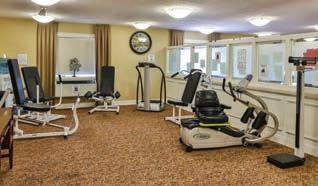
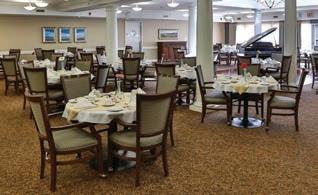
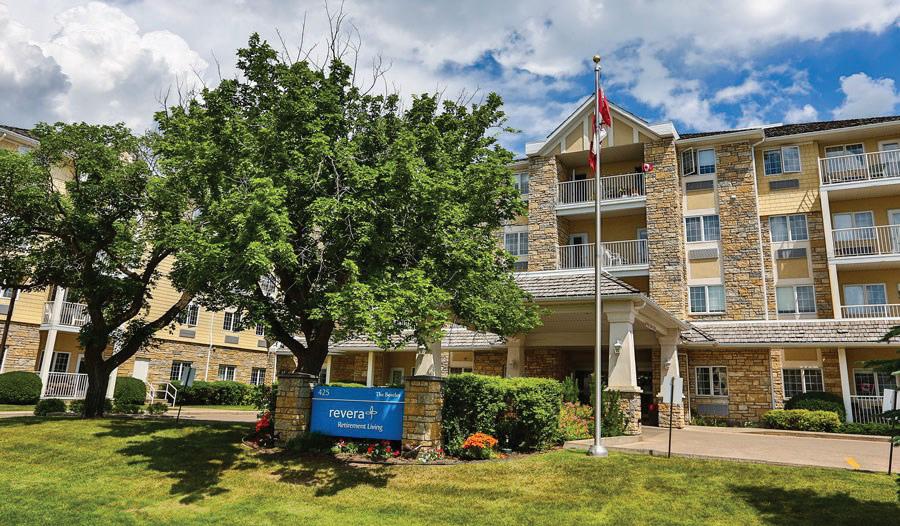

WWW.MOOSEJAWEXPRESS.COM 47
Testimonial:
your life the way you want at The Bentley. Located in beautiful Moose Jaw, our retirement residence boasts the ambiance of a grand hotel with a friendly atmosphere.
Rod today for your personal tour and complimentary dinner 425 4th Ave NW, Moose Jaw | 306-692-7161 | reveraliving.com
Resident
Barb Beach - When I first came for a tour with my son Trevor, I wasn't sure if I was too young to move into a community like The Bentley. But after touring with Rod and seeing what they have to offer it was one of the easiest and best decisions I have made. From the first day I moved in the staff and other residents have made me feel at home. Maybe the only thing I regret is not doing it sooner. Live
Call
Affordable Living for 50+ with no Condo Fees!


PRIME LOCATION, YOUR OWN KITCHEN, 1 AND 2 BEDROOM’S HEATED PARKING AND ELEVATORS!



APARTMENTS RANGING FROM 500 - 1200 SQ FT
Athabasca Tower
Athabasca Towers is a beautiful senior’s high rise located in the downtown core of Moose Jaw, SK across from Crescent Park. This 8 storey high rise features an elevator, underground heated parking, laundry facilities on each oor, balconies, and central air conditioning! Kitchen cupboards, bathroom vanities, ooring, paint, windows and doors are newly renovated! Quiet, Concrete Constructed Building. The building has a busy common room with many events the residents plan and take part in daily.
Park Avenue
This is Moose Jaw’s Most Luxurious senior’s high rise, located in downtown core of Moose Jaw, SK across from Crescent Park it features underground heated parking, in-suite laundry, a dishwasher, 2 bedrooms, 2 bathrooms, and 1200 sq. ft. of living space! New Kitchens & Bathroom vanities, ooring, paint and windows as well! Quiet, Concrete Constructed Building.
Willowdale Court
This 3 storey apartment complex is located in the north east area of Moose Jaw, SK on a quiet street overlooking the scenic Happy Valley. Willowdale Court features a newly replaced elevator, underground heated parking, balconies/patios, and wall air conditioning.
You can see why Ottawa Real Estate Co Ltd is the first place to look in Moose Jaw when looking for an apartment to rent. You can also purchase tenant insurance or even take care of any motor vehicle or drivers license transactions you may have at Ottawa Real Estate Companies one stop shop!
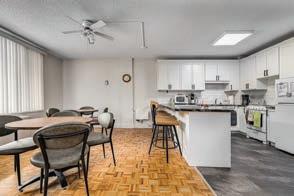

WWW.MOOSEJAWEXPRESS.COM 48 www.moosejawrealestate.net
306-694-4747 324 Main Street N. MOOSE JAW, SK

































































































































































































































































































































 Prairie Landscape Horticulturist - U of S Alumni
Prairie Landscape Horticulturist - U of S Alumni










 By Saddman Zaman Moose Jaw Express/MooseJawToday.com
By Saddman Zaman Moose Jaw Express/MooseJawToday.com









 Michael Penner
Andrew Pratt Terri Lamb
Michelle Ellis
Gary McDowell
' '
Michael Penner
Andrew Pratt Terri Lamb
Michelle Ellis
Gary McDowell
' '

































































